Black Mammalogists Week
See the 2024 events & recordings here!
We are becoming a 501(c)(3). Join us as a board member!
What is the purpose of Black Mammalogists Week?To provide opportunities for current and aspiring Black mammalogists across the Diaspora to form conscious, fruitful connections, in addition to illuminating historical and present-day Black contributions to the field of Mammalogy.In our ideal future, young Black people of all backgrounds will realize that they are not only welcome, but needed, and vital, to the future of this field.Apply for our scholarship, the Black and Indigenous Scholars in Mammalogy Award! See past awardees here.
Black & Indigenous Scholars in Mammalogy Award ($1500)
Due October 15th 2026
Donate to the award here!
T
The Applicant...
Is a current, potential, or aspiring Mammalogist
Is from or residing in North or South America
Is Black/African American, African, and/or Indigenous, as outlined in the United Nations guidelines for identifying Indigenous peoples
Is at any experience level may apply, from high school to early and established professionals. There is no age limit
If a high school-level applicant, must be asking for funding for a formal course, program, or training related to Mammalogy
Doesn't need to be be affiliated with academic institutions
Doesn't need to be a current member of the American Society of Mammalogists
To maximize the gains of this award, applications from students and early-career professionals will be given priority over established professionals.
See past Black and Indigenous Scholar Awardees here!
T
The Award...
Is targeted at research and activities related to mammals
Isn't limited to any specific research theme: ecology, behavior, biogeography, genomics, physiology, taxonomy, or any other arena is acceptable
Isn't intended to support research on humans (although research on how humans impact non-human mammals could be acceptable)
May be used to support the cost of equipment or supplies; field assistants; travel to/from research sites, museums, or other venues for research or coursework; meeting registration cost and travel to meetings; publishing costs; course or training fees; or per diem, as justified by the applicant
May not be used for “pay to play” or other exploitative “volunteer” opportunities
Is solicited each fall, beginning on September 1 and closing at 11:59 pm PST on October 15, with recipients notified by November 15.
T
Application materials must include...
Name, email, address, and phone number of the applicant,
An itemized budget of proposed activities (including matching funds, if appropriate), ranging from $200 to a maximum of $1,500. Indicate whether you are applying for other funding, and the sources you are applying to,
A reference letter from a professional who can speak to 1) the applicant’s current and future work in Mammalogy, 2) how much the applicant has been pursuing alternative funding sources, and 3) how the funds from this award would benefit the applicant’s lab, department, or discipline more broadly. The reference letter must be submitted by 11:59 pm PST on the day the application is due, and
A supporting statement with responses (100-500 words each) to each of the questions listed below in one document (PDF or Word document acceptable) with 1” margins, single-spaced, and Arial/Times New Roman/Calibri fonts
What are your goals, interests, and hopes for your future career?
How will this award help you to achieve your career goals, interests, and hopes?
How has being Black/African American, African, and/or Indigenous brought you to where you are now, and how do you see your identities influencing your future career?
How do you see this award benefiting you, as well as your colleagues, friends, mentees, discipline, or community?
If you receive partial funding from this grant that is lower than your submitted budget, how will you use the partial funding?
T
We like applications that show...
The applicant's quality (not quantity) of efforts and their impact
The award will obviously help the applicant professionally and in some way related to mammalogy
How the applicant’s identity has contributed to their career goals, interests, and hopes
The proposals will have broad impacts and the funds will go further/influence more than the applicant’s specific project
T
Apply for the award here!
T
Any questions about the application process or the award itself can be directed to Rhiannon Jakopak at [email protected].
We are becoming a 501(c)(3) and looking for board members!
Check out the job description and submit a CV/resume and cover letter to [email protected]. Applications open until position filled.
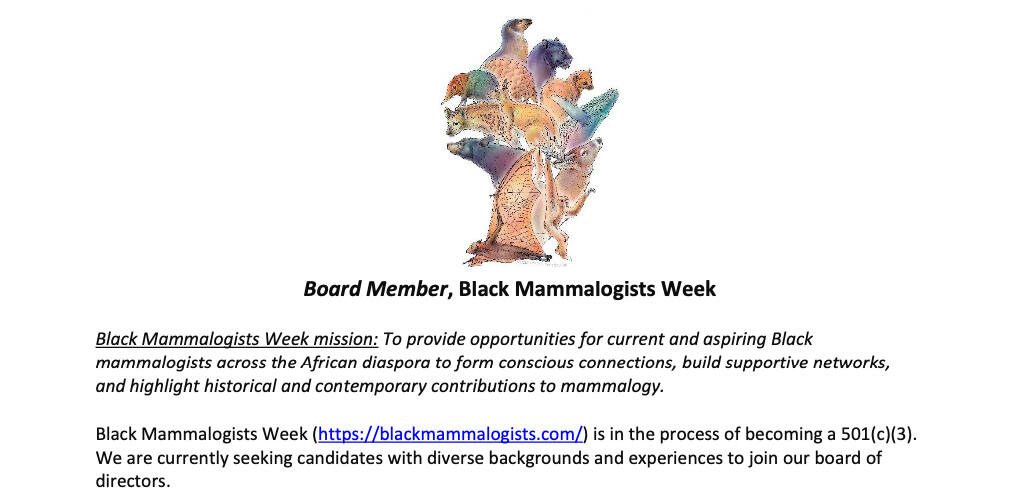
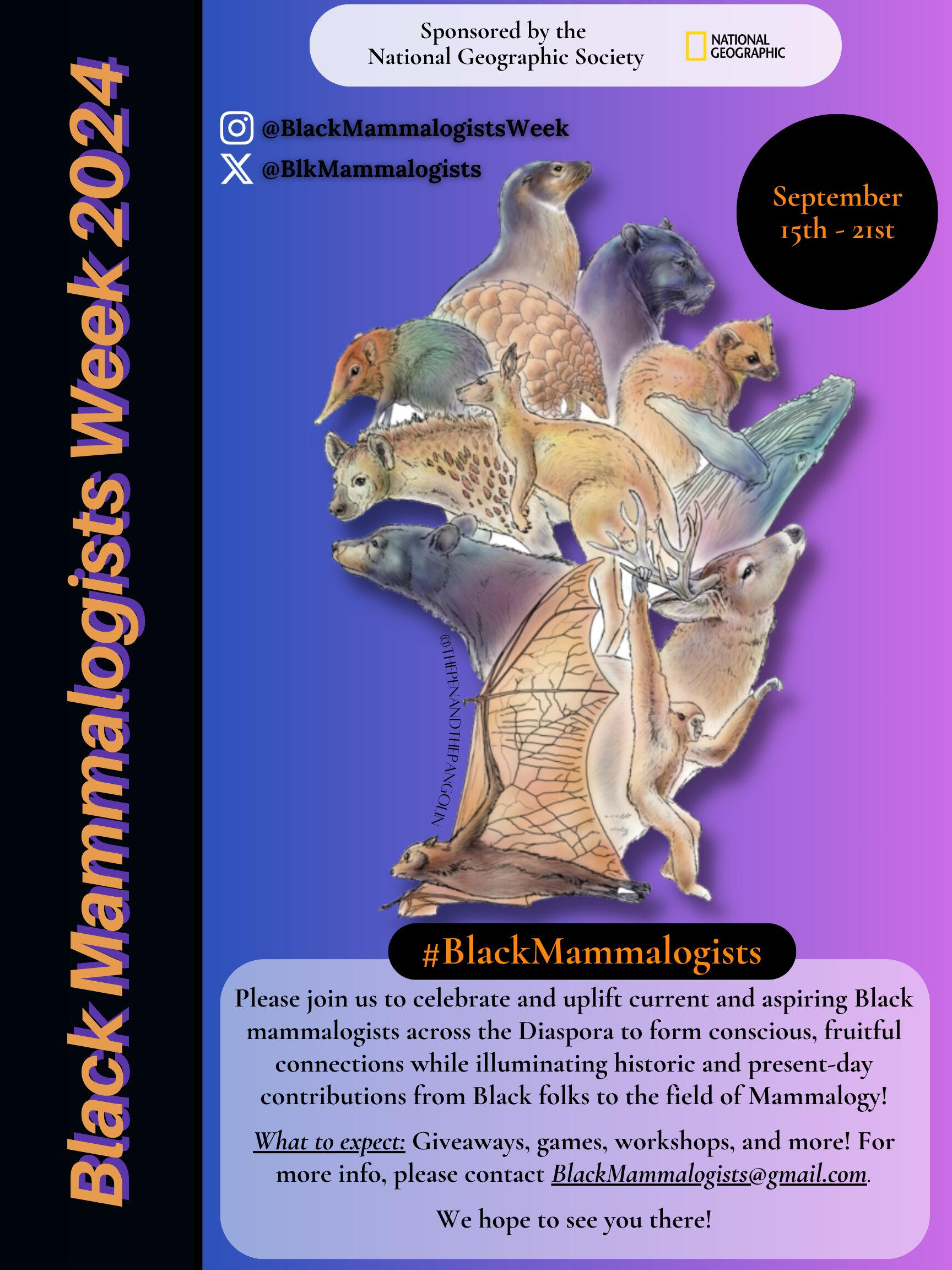
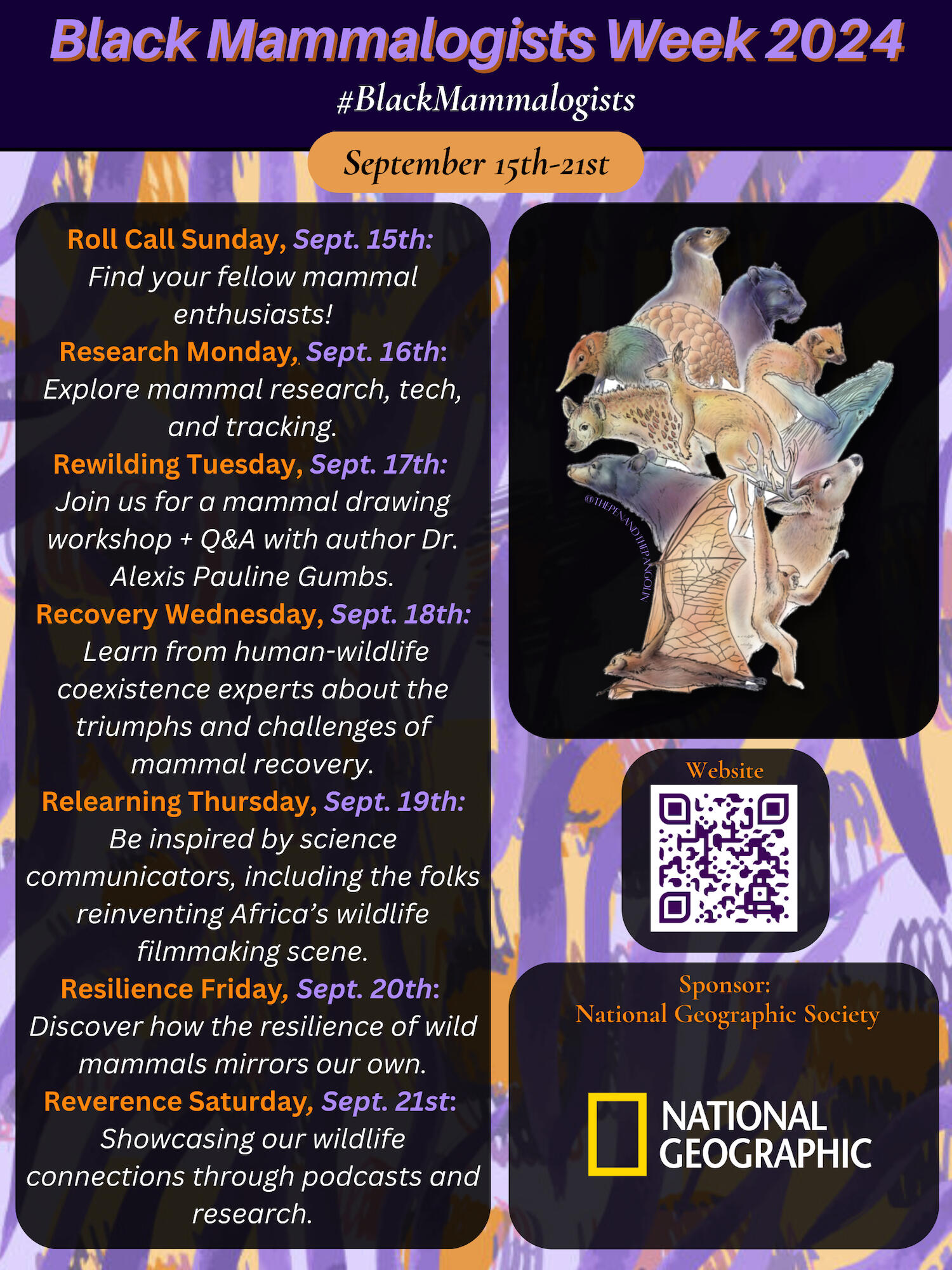
Click here to determine when events are happening in your time zone. Don't worry about missing an event: most will be recorded and uploaded to our Youtube!
Daily
Word Games: solve the puzzle, use the hashtag, and get entered into a drawing for a prize like stickers or a T-shirt!
Follow Wildlife Media Collab and count down to some of the "Most Extreme" mammals, Black Mammalogists Week style. New species shared every weekday!
Giveaways
We're giving away stickers, T-shirts, books, and tech every day. Make sure you don't miss out on free stuff by:
September 15: Roll Call
Find and follow Black mammalogists on Twitter, bluesky, Instagram, and Threads using #BlackMammalogistsRollCall.
September 16: #ResearchMonday
Learn more about Black mammalogists and their work on Threads with the InsideNatGeo Threads Takeover!
11 am PST (UTC - 7): Mammal ID Track Workshop with Hunters of Color, Alexis Harvey & Brandon Dale
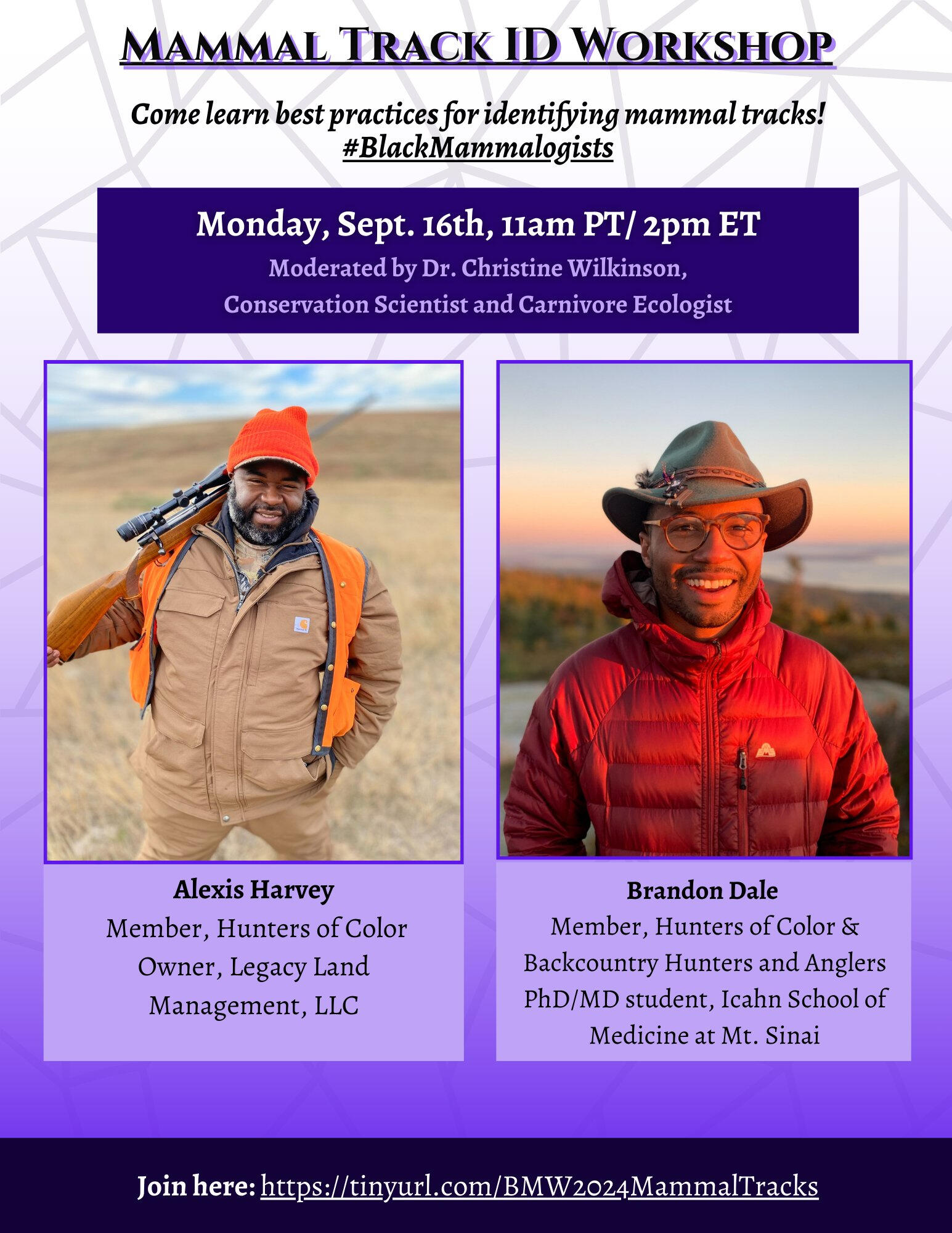
Watch the stream here!
3 pm PST (UTC - 7): Conservation Tech Speed Dating
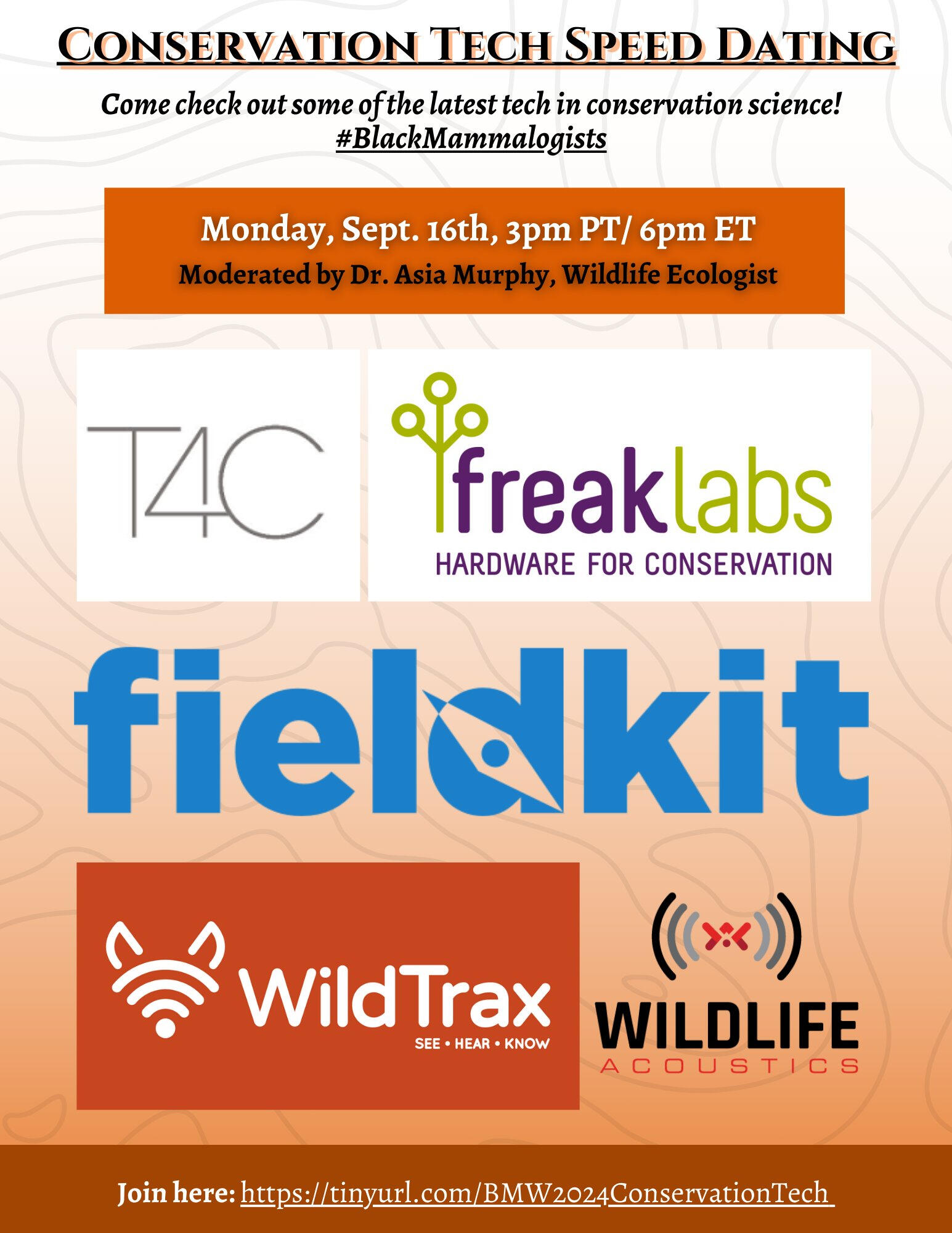
With:
Jacinta Plucinski and Akiba Wang, Freaklabs
Maureen Reilly, Tech 4 Conservation
Shah Selbe, Conservify & FieldKit
Kyle Sheridan, Wildlife Acoustics, Inc.
Cassondra Stevenson, WildTrax
Watch the stream here!
September 17: #RewildingTuesday
9 am PST (UTC - 7): Fireside Chat with Dr. Alexis Pauline Gumbs
A book reading & interactive Q&A with the author of Undrowned: Black Feminist Lessons from Marine Mammals!
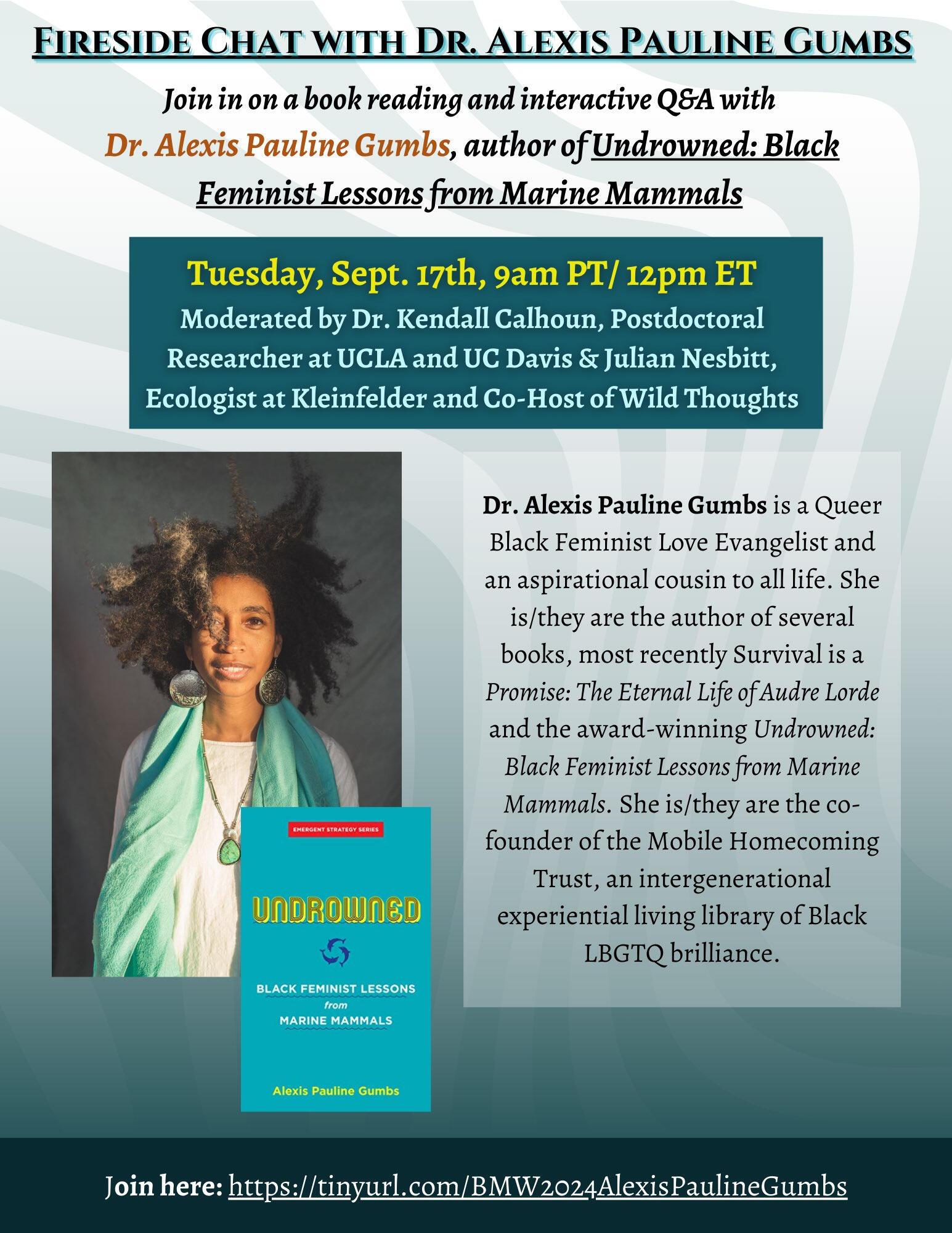
Watch the stream here (limited time only)!
4 pm PST (UTC - 7): Mammal Drawing Class
Learn to draw mammals & about being an artist with award-winning artist Dominique Ramsey!
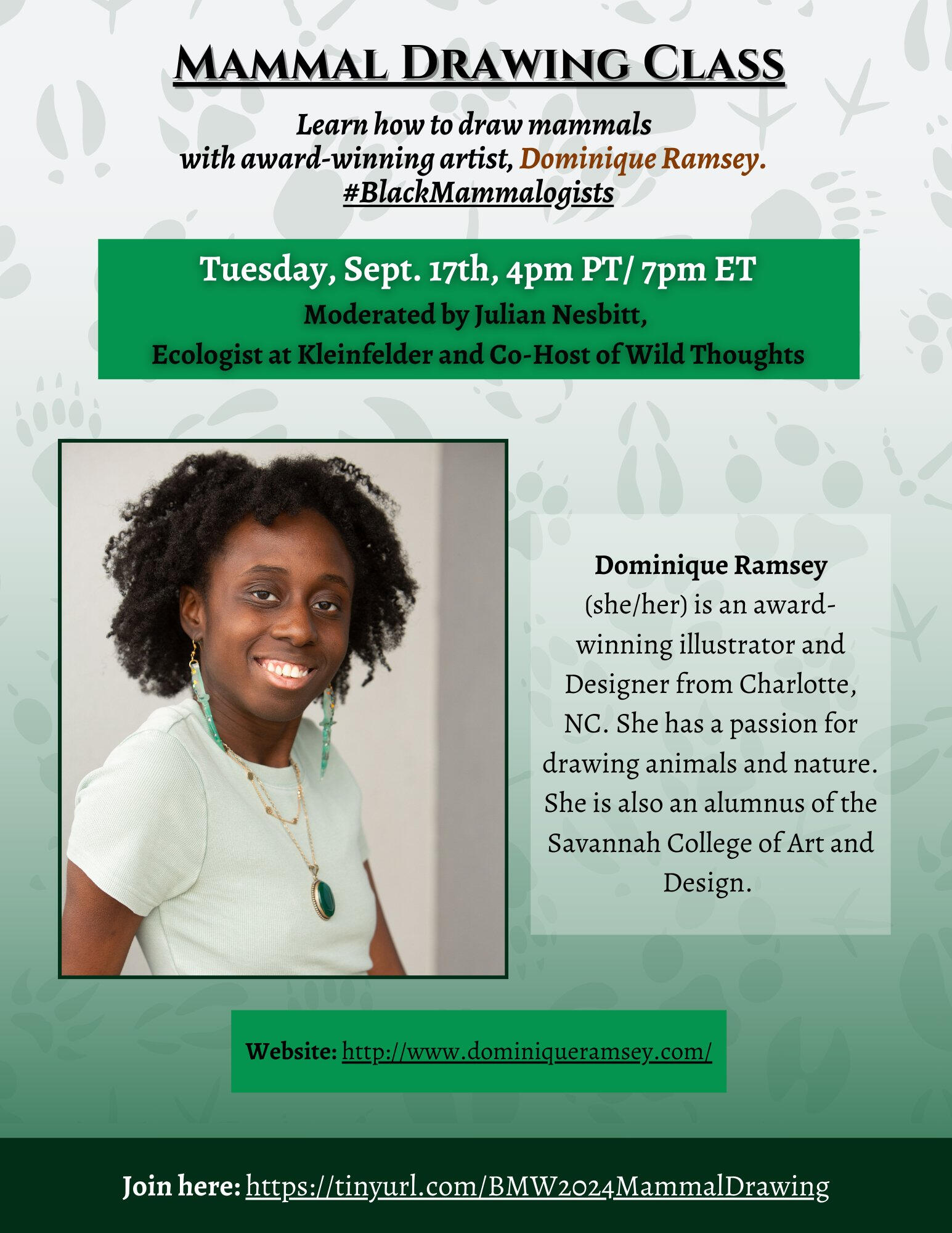
Watch the stream here!
September 18: #RecoveryWednesday
11 am PST (UTC - 7): Human-Wildlife Coexistence
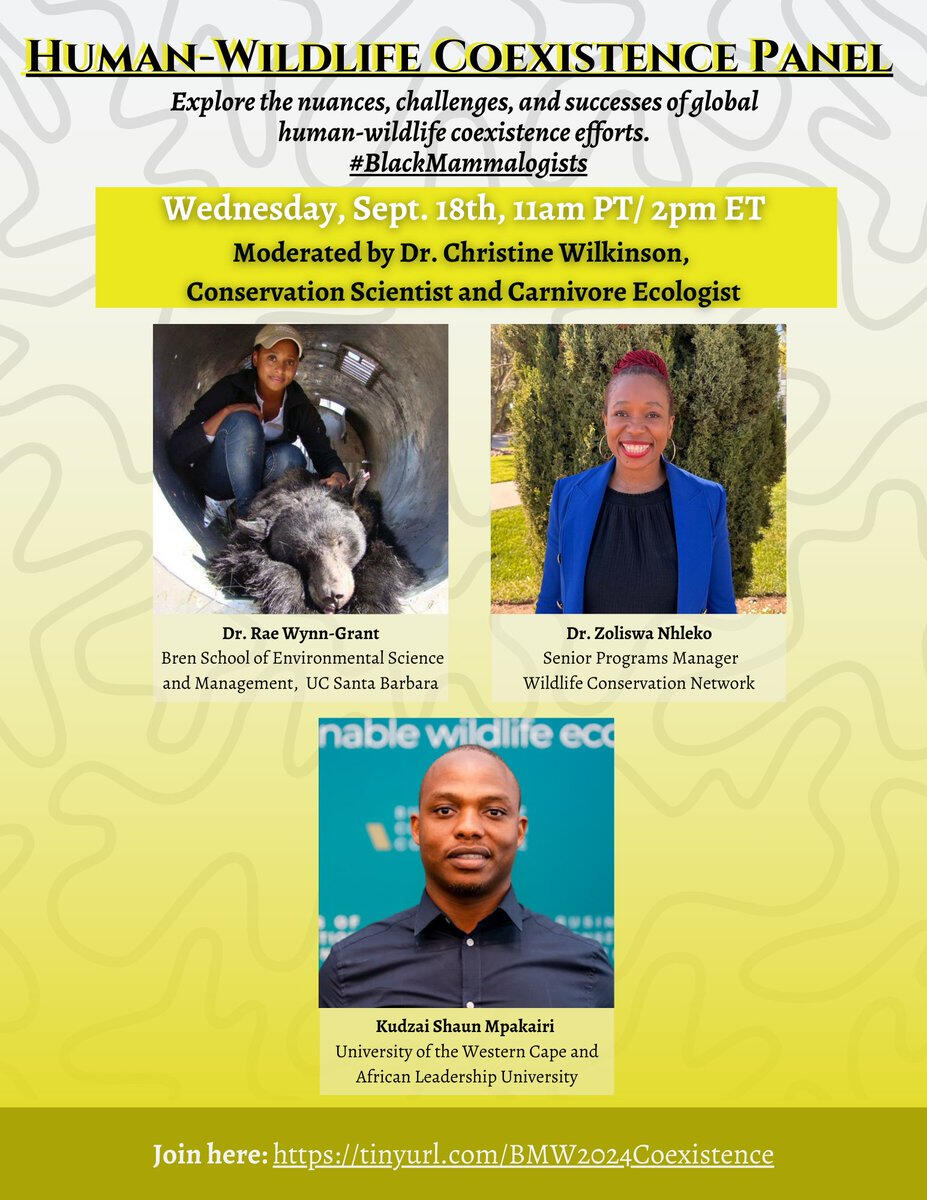
With:
Kudzai Shaun Mpakairi, University of the Western Cape & African Leadership University
Dr. Zoliswa (Zoe) Nhleko, Wildlife Conservation Network
Dr. Rae Wynn-Grant, UC Santa Barbara
Watch the stream here!
September 19: #RelearningThursday
9 am PST (UTC - 7): African Wildlife Filmmakers Showcase
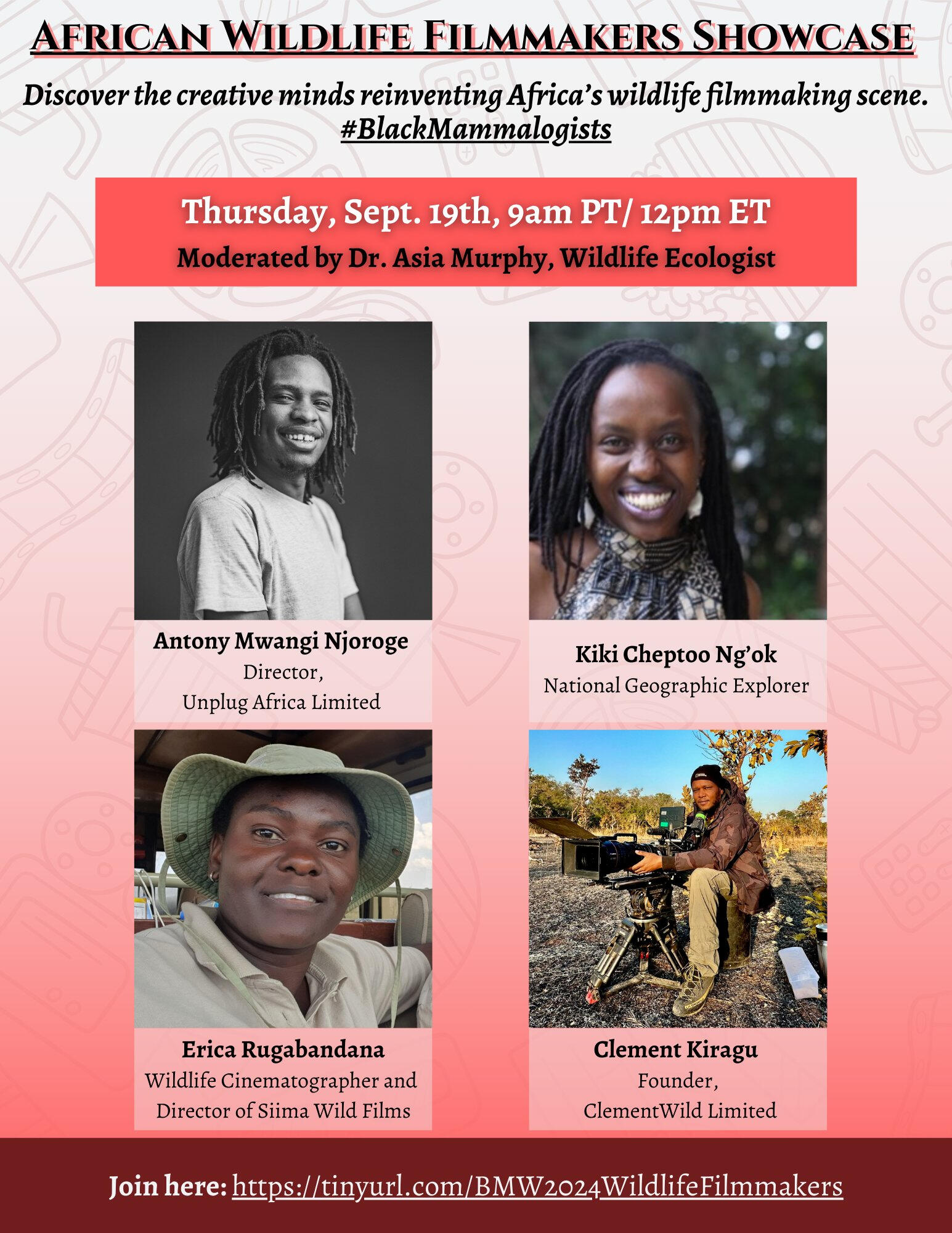
With:
Clement Kiragu, ClementWild Limited
Kiki Cheptoo Ng'ok, National Geographic Explorer
Antony Mwangi Njorogoe, Unplug Africa Limited
Erica Rugabandana, Siima Wild Films
Watch the stream here!
1 pm PST (UTC - 7): Wildlife in Media: How To Share in the Internet Age
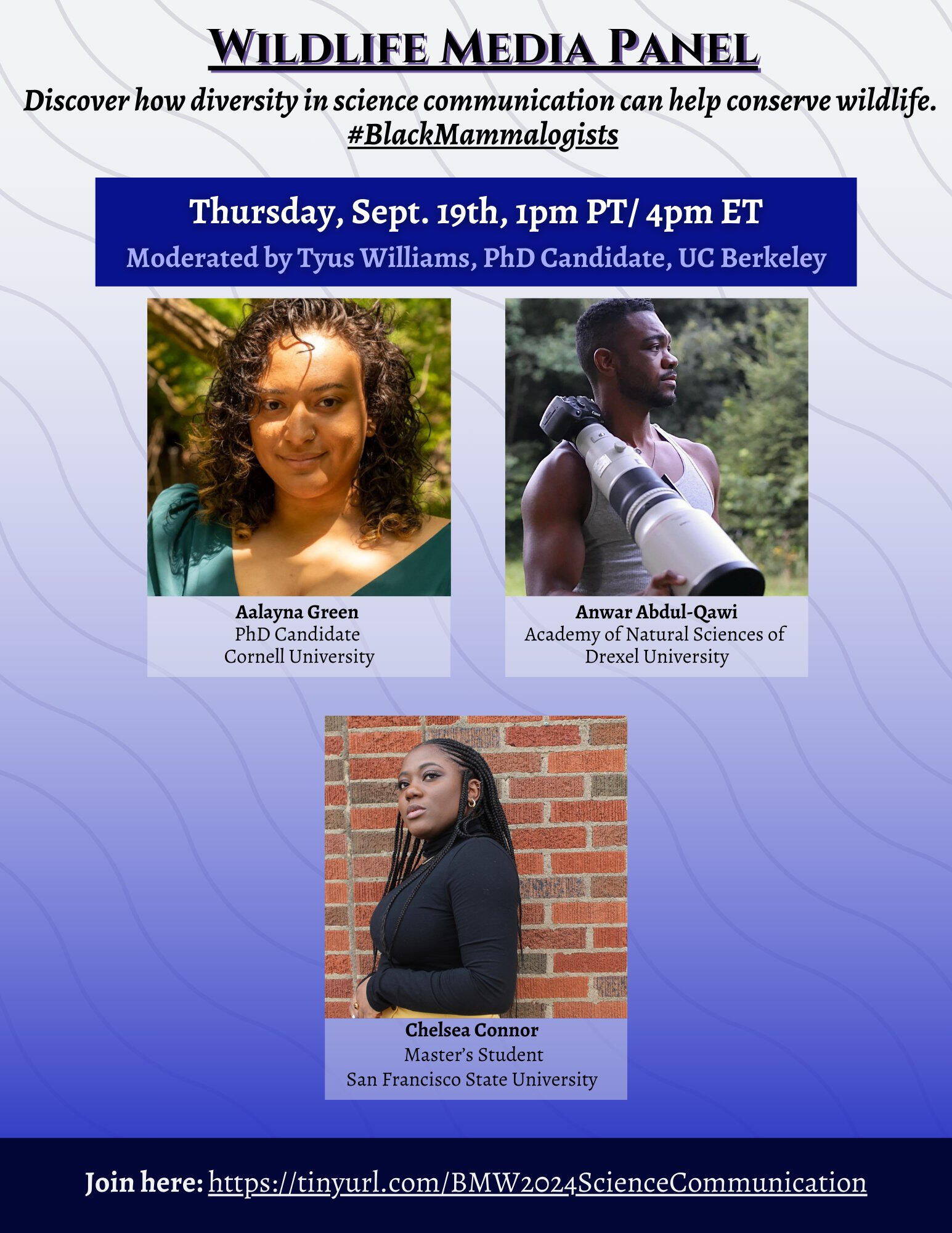
With:
Anwar Abdul-Qawi, Drexel University
Chelsea Connor, San Francisco State University
Aalyna Green, Cornell University
Watch the stream here!
September 20: #ResilienceFriday
10 am PST (UTC - 7): Resilient Mammals in a Changing World
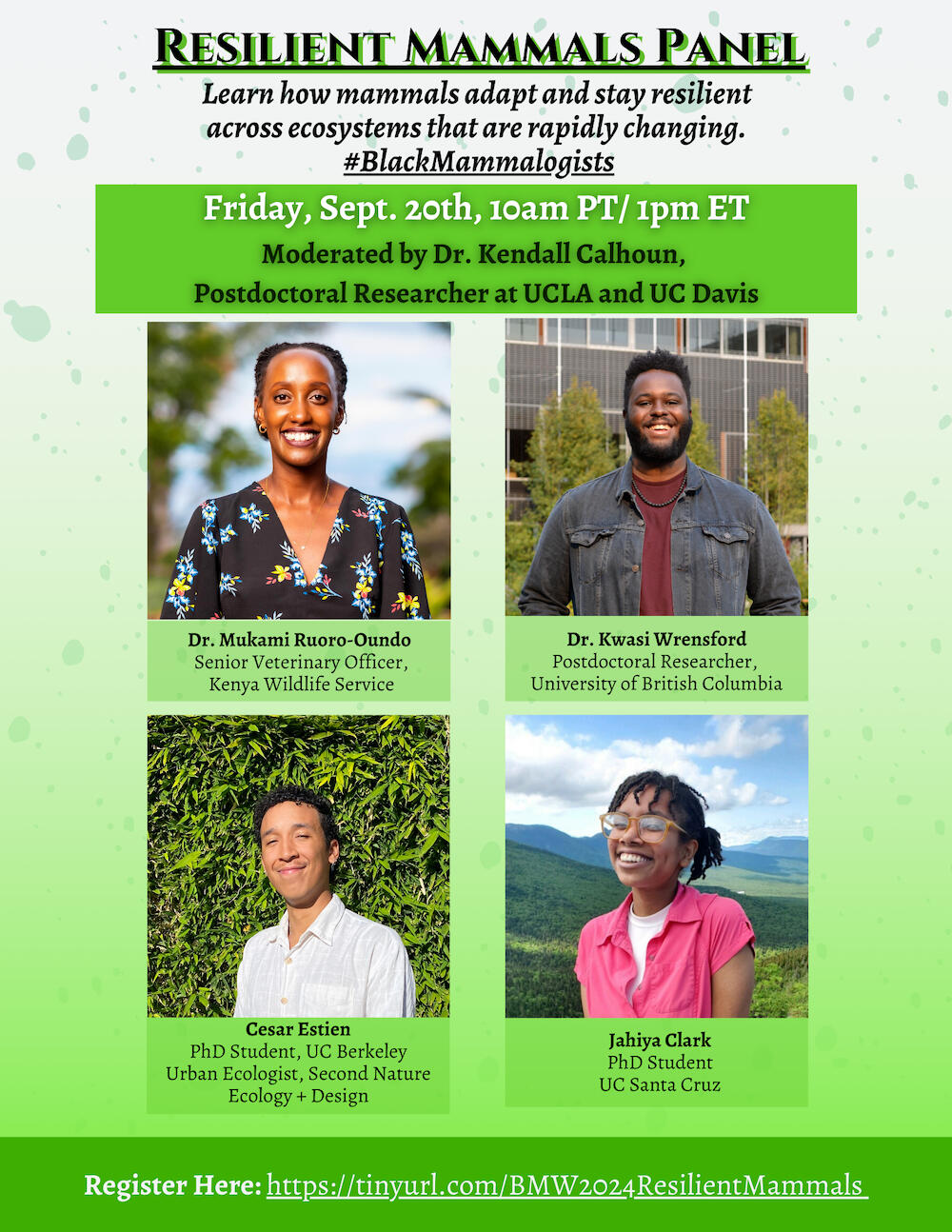
With:
Jahiya Clark, UC Santa Cruz
Cesar Estien, UC Berkeley
Dr. Mukami Ruoro-Oundo, Kenya Wildlife Service
Dr. Kwasi Wrensford, University of British Columbia
Watch the stream here!
September 21: #ReverenceSaturday
10am PST (UTC - 7): Reflecting on Reverence: A Live Podcast of Wild Thoughts
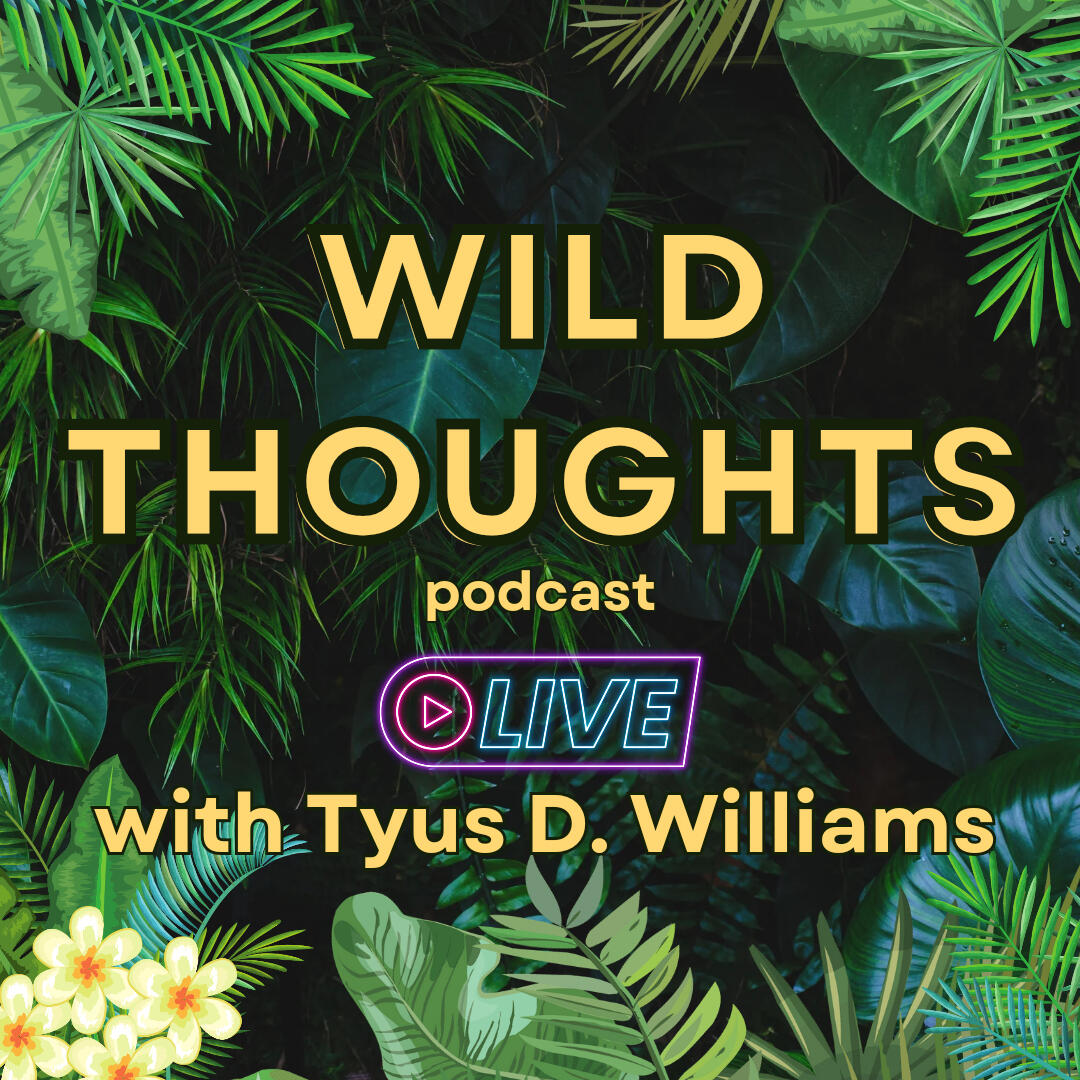
Come & chat with Tykee James, Julian Nesbitt, & Tyus Williams on reverence & wildlife!
This will be a LIVE event! Find:
Tykee James on the Black Mammalogists Week IG
Julian Nesbitt on the Wildlife Media Collab IG
Tyus Williams on his personal IG
1 pm PST (UTC - 7): Black and Indigenous Scholar Awards Speed Talks
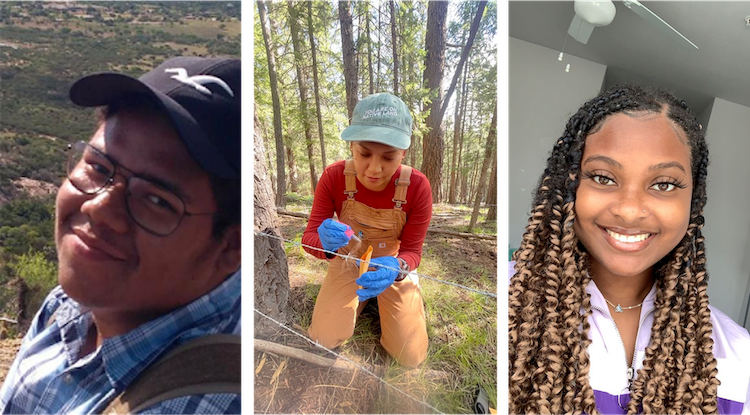
See what our past Black and Indigenous Scholar Awardees are up to!
Juann Aryell Francsico de Holanda Abreu on Anatomy, masticatory muscles, & opossums
Deandra Jones on Black bear research on the Navajo Nation
Ilana Mosley on Utilizing salvage specimens of Mexican free-tailed bats & raccoons for Trypanosoma cruzi surveillance in Texas
Moderator: Dr. Asia Murphy, wildlife ecologist.
Watch stream here!
Black Mammalogists Week 2024 Sponsors
Platinum ($5,000+)

Silver ($1,000 - $2,499)
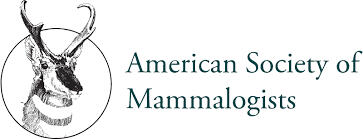
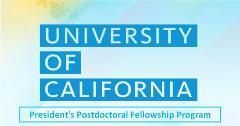


Bronze ($100 - $999)
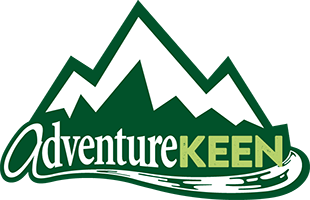
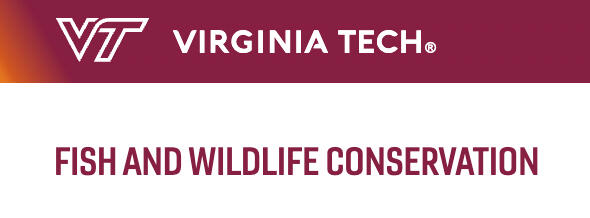
Copper ($1 - $100)
Dr. Duane Diefenbach, Department of Ecosystem Science & Management, Pennsylvania State University
Black Mammalogists Week 2024 Speakers & Moderators
Speakers
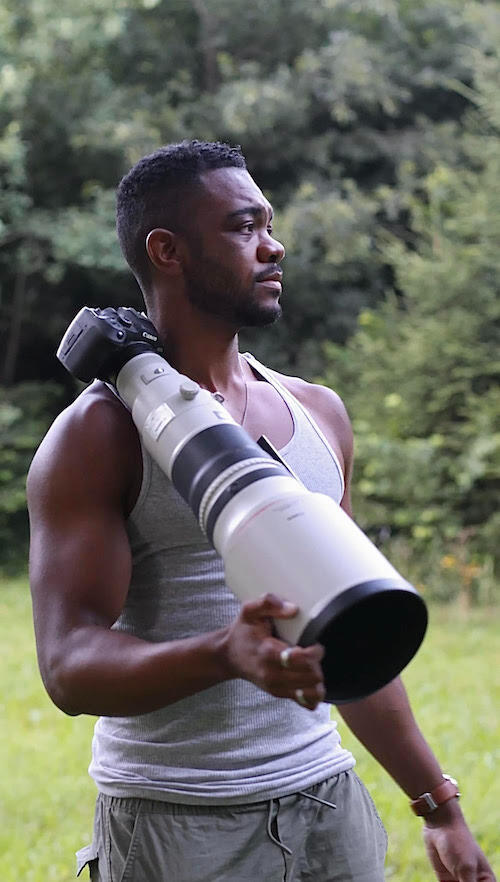
Anwar Abdul-Qawi, Animal Programs Manager at Academy of Natural Sciences of Drexel UniversityAnwar Abdul-Qawi is a zoologist, conservation educator, photographer, and animal keeper based in Philadelphia. Since 2010, he has worked with both people and animals finding new ways to inspire the public about the world and the millions of species that reside there. With a degree in Zoology, he currently works at the Academy of Natural Sciences of Drexel University as the manager of Animal Programs. His photography journey started during the pandemic, and although he is based in Philadelphia, his work ranges from Central Africa, Italy, and Slovenia.
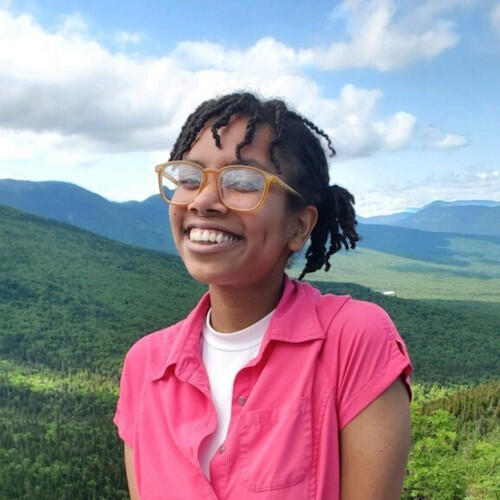
Jahiya Clark, PhD Student at UC Santa CruzIn 2021-2023, I worked for the Northeast Climate Adaptation Science Center, where I managed a network of camera traps throughout the Adaptive Silviculture for Climate Change Project at the Second College Grant, NH, the Silvio O. Conte National Fish and Wildlife Refuge - Nulhegan Basin Division, VT, and the Jefferson Notch of the White Mountains, NH. During this I was able to get my master's at the University of Massachusetts Amherst, where I analyzed mammal occupancy across three adaptive silvicultural management strategies for flying and red squirrels, martens, fishers, coyotes, black bears, white-tailed deers, and moose.Currently, my PhD work is creating land use and land cover change from 36 indigenous villages and conserved land in northern Tanzania. Moving forward, I am exploring research ideas on how mammalogy could be incorporated in this work in a novel way.
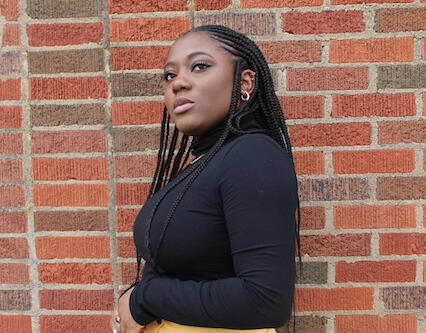
Chelsea Connor, Masters Student at San Francisco State University (website)Chelsea Connor is a herpetologist, artist and graduate student from the Commonwealth of Dominica in the Caribbean. She has worked on the diet overlap between the native and invasive species of anole on her home island as an undergrad and is excited to continue her work as a grad student looking at Caribbean biogeography and Lesser Antillean reptiles. Chelsea loves anoles and as a science communicator she has co-founded #BlackBirdersWeek with BlackAFinSTEM. Chelsea also spends time putting together and sharing information on different anoles with her hashtag #DidYouAnole? on Twitter.
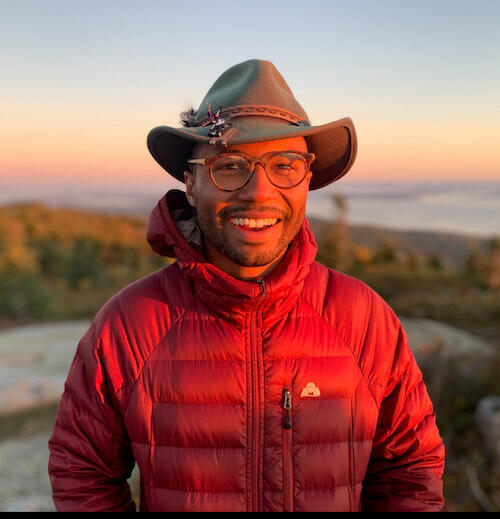
Brandon Dale, Member of Hunters of Color & Backcountry Hunters & Anglers & PhD/MD Student at Icahn School of Medicine at Mount SinaiBrandon Dale, PhD Biomedical Science & Pharmacology, is a dual-degree medical student and lifelong hunter, angler, and conservationist living in New York City. He actively supports statewide conservation efforts and BIPOC engagement in nature as the New York Ambassador for Hunters of Color, NY Backcountry Hunters and Anglers Board Chair, NYC Trout Unlimited Vice President, and New York City Conservation Fund Advisory Board Representative to enhance outdoor recreational opportunities and conservation projects across New York.
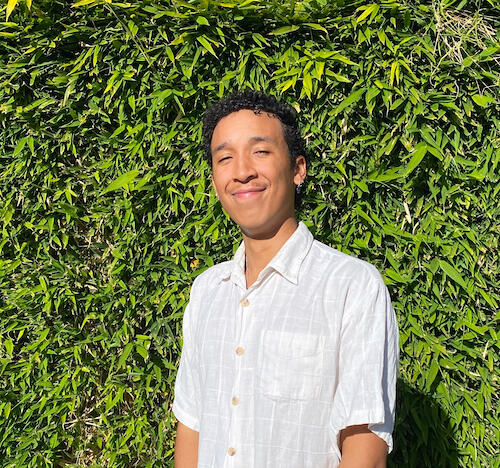
Cesar Estien, Ecologist at Second Nature Ecology + Design & PhD Student at UC BerkeleyCesar Estien is an urban ecologist based in Oakland, California, where they study how societal inequities and injustices shape wildlife ecology, biodiversity, and biodiversity data.
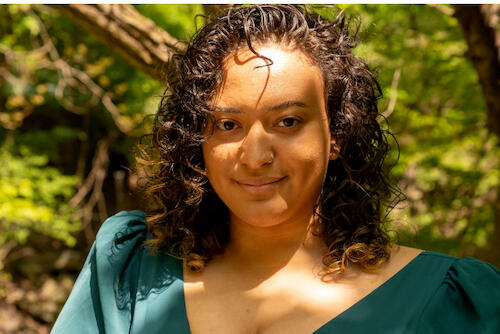
Aalayna Green, PhD Candidate at Cornell UniversityAalayna R. Green (she/her) is a trained conservation social scientist whose work focuses on the application of environmental justice to conservation science and practice. She obtained her B.S. in Zoology from Michigan State University and is pursuing her PhD in Natural Resources & the Environment with a graduate specialization in Feminist, Gender & Sexuality Studies, at Cornell University. She has been recognized as a fellow through the National Science Foundation, the Sloan Foundation, Oxford University, and Columbia University.
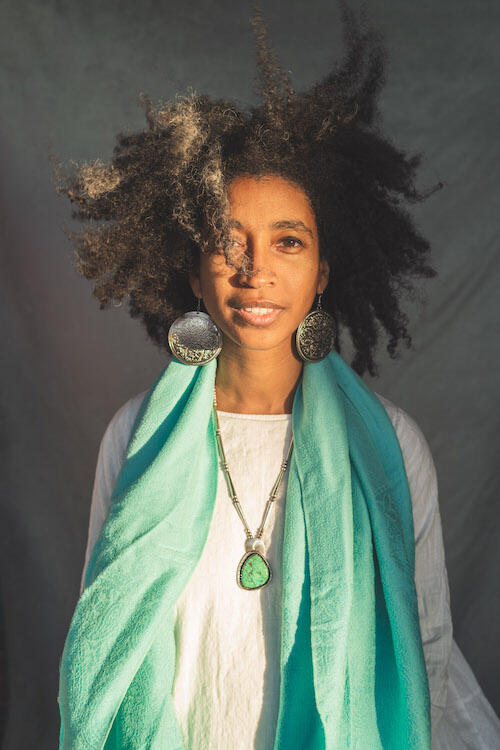
Dr. Alexis Pauline Gumb, Author of Undrowned: Black Feminist Lessons from Marine MammalsAlexis Pauline Gumbs is a Queer Black Feminist Love Evangelist and an aspirational cousin to all life. She is/they are the author of several books, most recently Survival is a Promise: The Eternal Life of Audre Lorde and the award-winning Undrowned: Black Feminist Lessons from Marine Mammals. She is/they are the co-founder of the Mobile Homecoming Trust, an intergenerational experiential living library of Black LBGTQ brilliance.
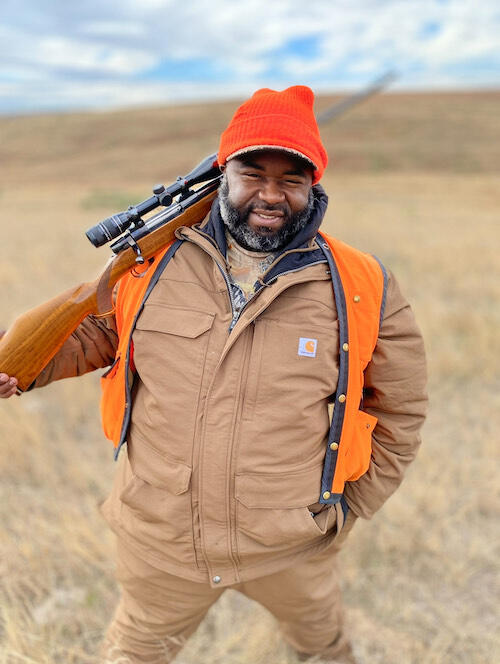
Alexis Harvey, Member of Hunters of Color & Owner of Legacy Land Management, LLCAlex Harvey is a dedicated Consulting Forester and Wildlife Biologist with a passion for integrating sustainable forestry practices within underserved communities. With a background in natural resources management and a focus on equitable resource management, Alex aims to educate underserved communities on how to implement conservation practices to develop economic opportunities in underserved areas across the rural southern United States. For Black Mammalogist Week, Alex is committed to bridging the gap between conservation and community development, ensuring that all voices are in the conversation about our natural resources.
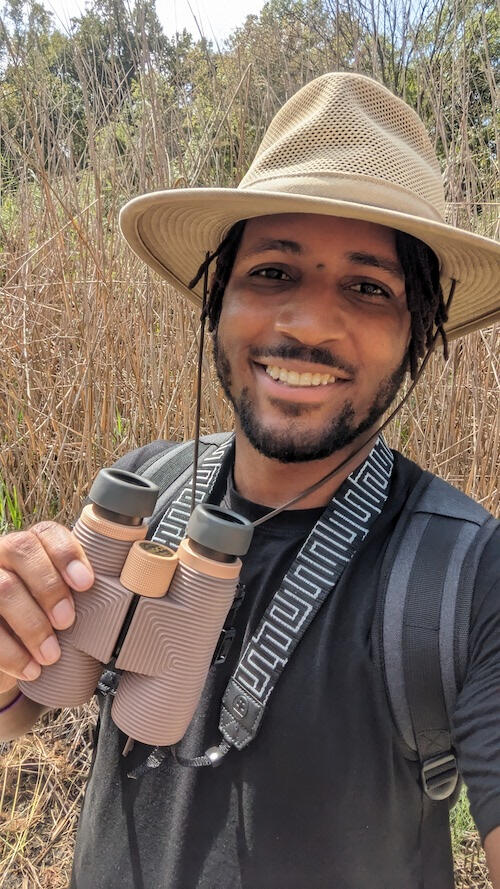
Tykee James, Education Programs Manager at Conservation Nation, Co-Founder of Wildlife Media Collab, & Co-Host of Wild ThoughtsTykee James is a Denver-based conservation leader advocating for equitable access to nature's benefits. With over a decade of experience as an environmental educator, he leverages his love for birds to build trust, forge coalitions, and make a lasting impact. Recently, he was hired as the education program manager for Conservation Nation, an international conservation organization that shares his vision for meaningful change.
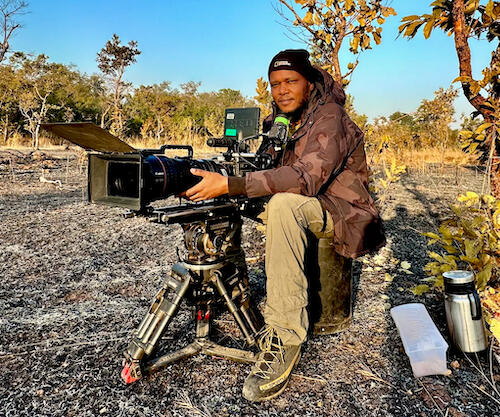
Clement Kiragu, Founder of ClementWild LimitedMy name is Clement Kiragu (he/him), I am storyteller, a Wildlife Photographer, a Filmmaker and a National Geographic Explorer working and living in Kenya. I am currently working on a series of short films focusing on human-predator coexistence.
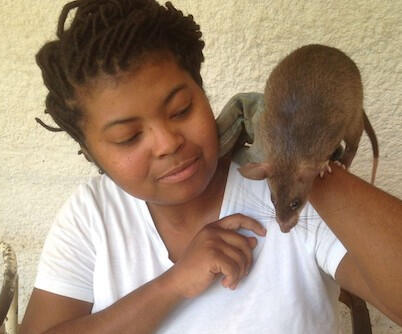
Dr. Danielle N. Lee, Assistant Professor of Biological Sciences at Southern Illinois University, EdwardsvilleDanielle N. Lee, Ph.D., (she/her) leads a research squad that group examines the ecology and ethology of nuisance rodents over urban environmental gradients with local community stakeholders. We offer authentic science experiences to local after-school high school groups and examine how field mice and field rats make a living near and off of people.
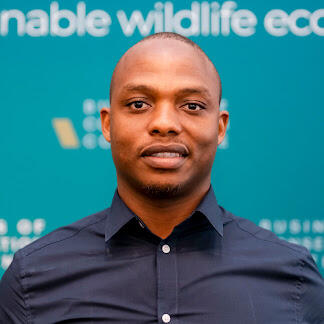
Kudzai Shaun Mpakairi, PhD Student at University of the Western Cape & Researcher at the School of Wildlife Conservation, African Leadership UniversityKudzai Shaun Mpakairi is an experienced geospatial data scientist contributing to high-impact conservation projects across Africa. His research interests span climate change, wildlife economies, agriculture water management, land-use assessments, and spatial data management.
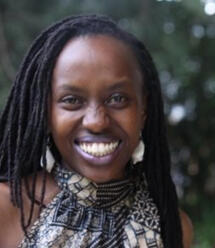
Kiki Cheptoo Ng'ok, National Geographic ExplorerKiki Cheptoo Ng’ok (she/her) is a producer/writer based in Nairobi, Kenya. She is especially interested in the relationships between people and landscapes, flora and fauna. Ng'ok hopes to illuminate the historical connections Indigenous Africans have with the environment. as a way to foster conservation efforts.
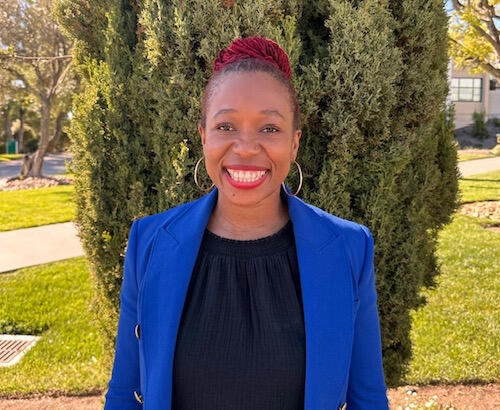
Dr. Zoliswa (Zoe) Nhleko, Senior Programs Manager at Wildlife Conservation NetworkDr. Zoe is a wildlife ecologist with over a decade of experience researching and managing on threatened and endangered species in Africa. She is currently a Senior Programs Manager at the Wildlife Conservation Network.
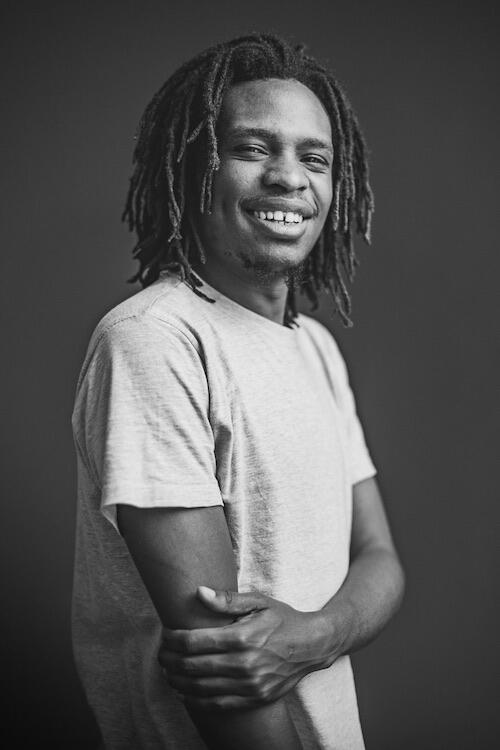
Antony Mwangi Njoroge, Director of Unplug Africa LimitedAntony Mwangi is a passionate filmmaker and environmental activist from Kenya, known for his work on projects like IF TURTLES COULD TALK and the upcoming film Memo, which highlights the conservation of the last northern white rhinos.
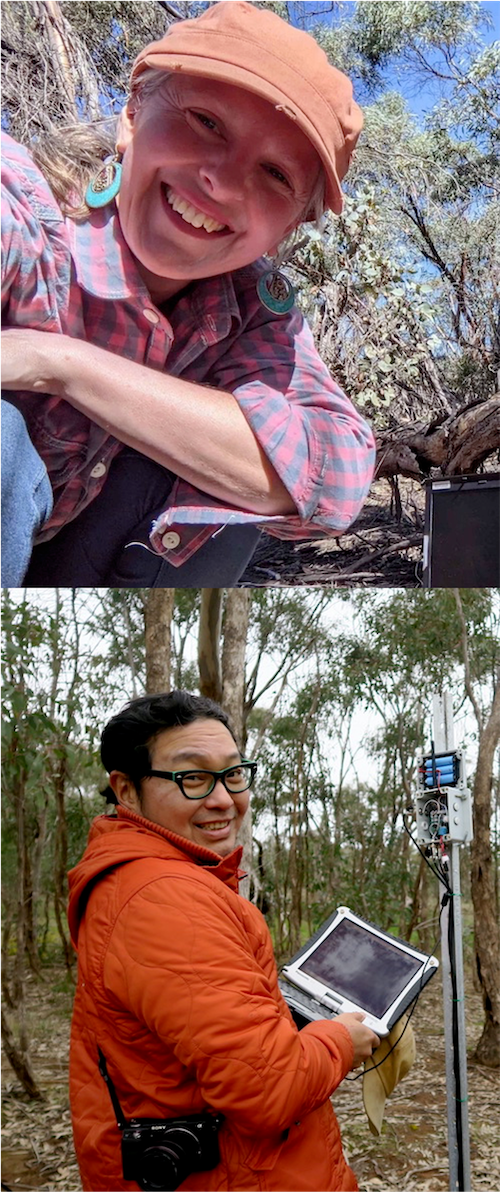
Jacinta Plucinski and Akiba Wang, FreaklabsJacinta Plucinski (she/her) and Akiba Wang (he/him) run Freaklabs which develops technology for wildlife research, and environmental conservation and restoration. Along with grassroots and independent conservation orgs and universities, they work with UNESCO, World Bank, and various governmental organisations like USFS and USFWS.
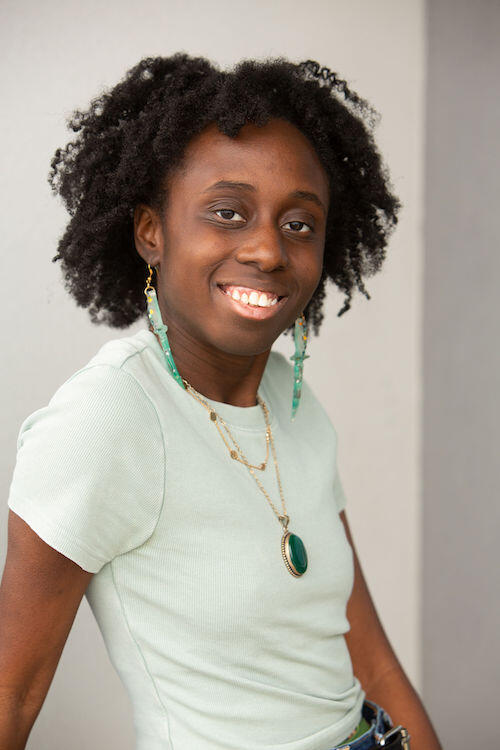
Dominique Ramsey (website)Dominique Ramsey (she/her) is an Award-winning illustrator and Designer from Charlotte, NC. She has a passion for drawing animals and nature. She is also an alumnus from Savannah College of Art and Design.
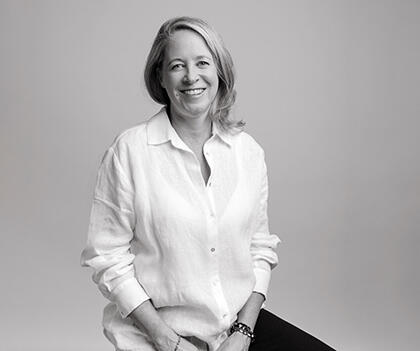
Maureen Reilly, Co-Founder of Tech 4 ConservationMaureen Reilly (she/her) is the co-founder of Tech 4 Conservation, a nonprofit organization that harnesses technology to advance global wildlife conservation efforts. With a strong background in information technology, she is committed to delivering innovative solutions in support of effective, timely and data-driven conservation action.
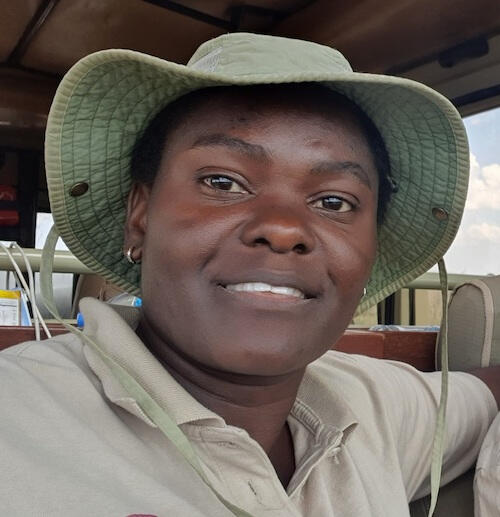
Erica Rugabandana, Wildlife Cinematographer & Director of Siima Wild FilmsErica Francis Rugabandana is an award-winning filmmaker from Tanzania, has a background in wildlife management and community development, with specialization in communication for environment and wildlife conservation education.
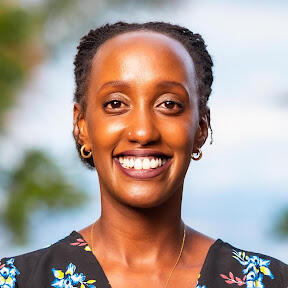
Dr. Mukami Ruoro-Oundo, Senior Veterinary Officer at the Kenya Wildlife ServiceDr. Mukami Ruoro-Oundo is a distinguished wildlife veterinarian who holds a Bachelors in Veterinary Medicine from the University of Nairobi. Currently serving as a Senior Veterinary Officer at the Kenya Wildlife Service for the Southern conservation area. Her work encompasses carrying out interventions on sick or injured wildlife, translocation activities and rescue and rehabilitation of wildlife. She works with a myriad of species, including elephants, chimpanzees, zebra, endangered pangolins, and the often misunderstood spotted hyena.Dr. Ruoro-Oundo works towards safeguarding Kenya's wildlife for the future generations as a dedicated educator. She frequently engages with local communities and aspiring conservationists, spreading awareness about the importance of protecting Kenya's wildlife heritage. Through sharing her journey and mentorship, she hopes to inspire a new generation of wildlife enthusiasts to carry the torch of conservation forward.
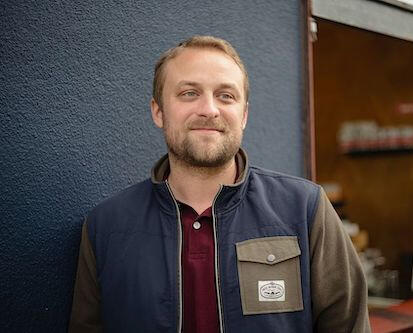
Shah Selbe, Founder of Conservify & FieldkitShah Selbe is an engineer, conservation technologist, and National Geographic Explorer who works with communities, NGOs, and academia in researching this intersection of technology and conservation with a focus on open-source technology development. He founded the nonprofit technology development laboratory Conservify with the mission of bringing open-source technologies into conservation and field science. He also founded FieldKit, an open-source software and hardware platform (environmental sensors, app, and FieldKit website) that allows individuals and organizations to collect and share field-based research data and tell stories through interactive visualizations.Shah is also a Nelson Institute Fellow at the University of Wisconsin Madison, a New England Aquarium Ocean Conservation Fellow, a PopTech Social Innovation Fellow, a former National Geographic Society Fellow (2016-2019), a Rolex Award Finalist, and sits on the Board of the International Bird Rescue.
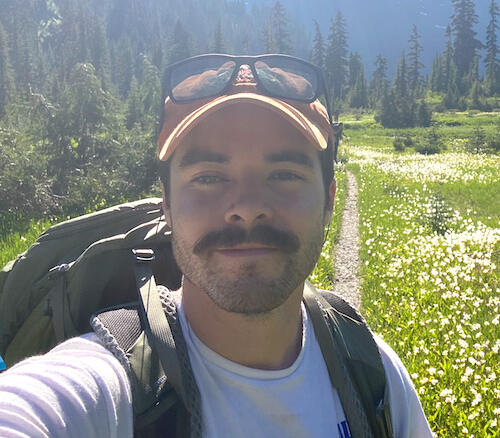
Kyle Sheridan, Sales Associate at Wildlife Acoustics, Inc.Kyle Sheridan has been a sales associate for 2 years at Wildlife Acoustics! He is an avid outdoorsman, and has traveled around North America helping promote the world of Bio Acoustics and teaching people about our technology.
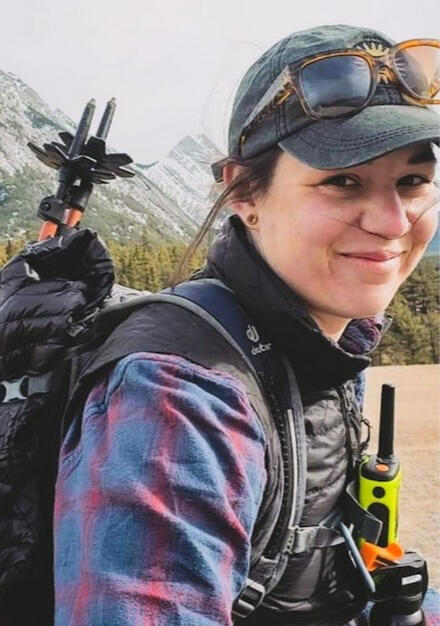
Cassondra Stevenson, Senior Remote Camera Coordinator with Alberta Biodiversity Monitoring Institute (ABMI) & Coordinator of the Alberta Remote Camera Steering Committee (RCSC)Cassie (she/her) is a Senior Remote Alberta Biodiversity Monitoring Institute (ABMI). She oversees remote camera operations in WildTrax, including internal and external data intake, ongoing platform enhancements, responding to users’ when questions or issues arise, as well as developing standards, protocols, and resources for managing remote camera data in WildTrax. When she isn’t helping WildTrax users get the most out of their sensor data, you’ll find her supporting collaboration as the coordinator of the Alberta Remote Camera Steering Committee (RCSC) and Community of Practice (COP).
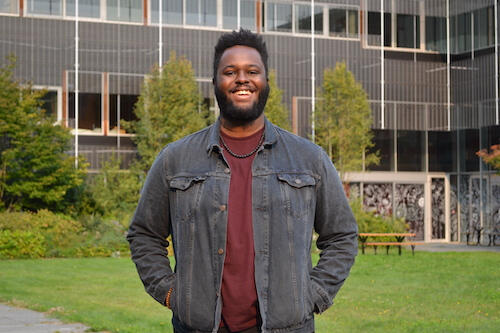
Dr. Kwasi Wrensford, Postdoctoral Researcher at University of British ColumbiaBorn in the US Virgin Islands, raised in South Georgia, currently living in Vancouver for an NSF funded postdoctoral fellowship. My work focuses on understanding the role of individual animal behavior in mediating population-level range shifts in response to climate change.
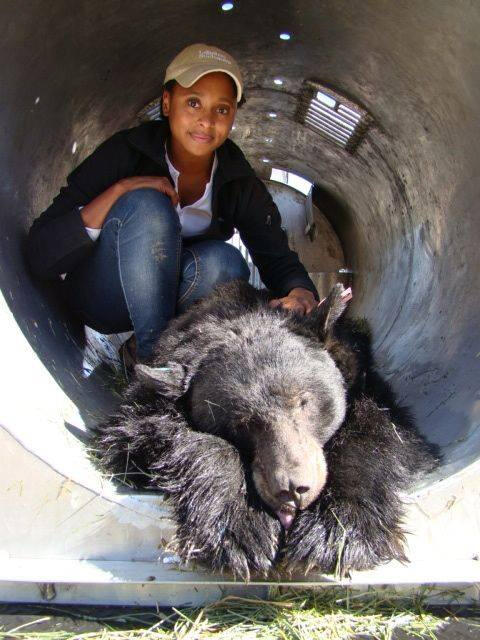
Dr. Rae Wynn-Grant, Bren School of Environmental Science and Management, UC, Santa BarbaraDr. Rae Wynn-Grant is a wildlife ecologist, conservation scientist, professor, and science communicator. She is the co-host of Mutual of Omaha’s Wild Kingdom Protecting the Wild on NBC and the author of her memoir Wild Life.
Moderators
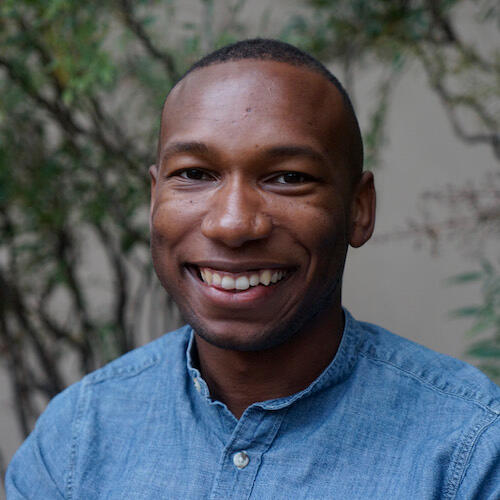
Dr. Kendall Calhoun, Postdoctoral Researcher at University of California, Los Angeles & DavisKendall Calhoun (he/him) is a postdoctoral researcher based at UC Davis and UCLA. His work explores the influence of changing fire regimes on mammal communities and human-wildlife conflict across California.
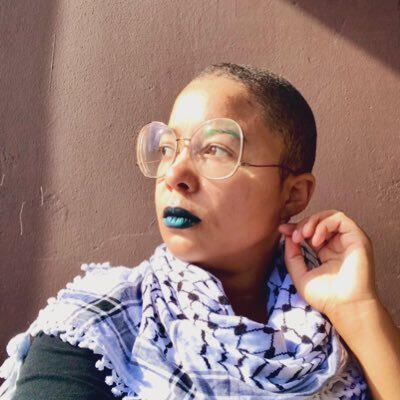
Dr. Asia Murphy, Wildlife EcologistAsia is a native Californian interested in how humans and our environments influence wildlife and interactions between species. She moonlights as a photographer and speculative fiction writer.
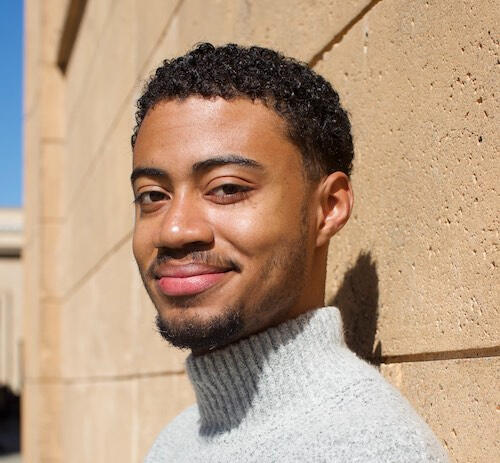
Julian Nesbitt, Ecologist at Kleinfelder & Co-Host of Wild ThoughtsJulian Nesbitt has been an avid nature enthusiast since watching Animal Planet and Nat Geo Wild. This spark has grown over the years to include a variety of jobs related to ecology, storytelling, and community engagement around environmental issues, and research experiences both at home in California and abroad from Costa Rica to Tanzania.
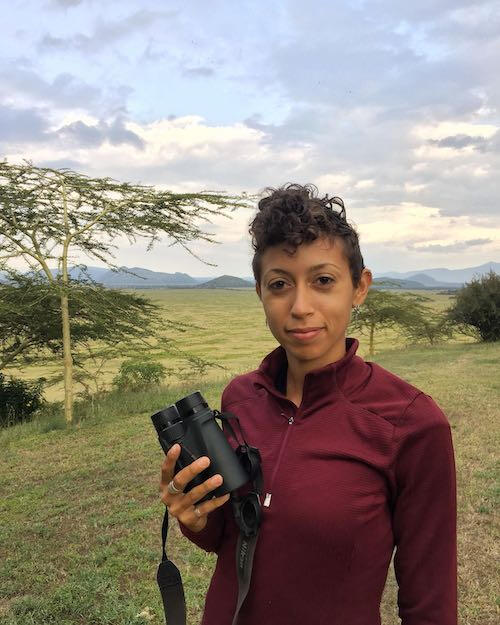
Dr. Christine Wilkinson, Schmidt Science Fellow at the California Academy of Sciences & UC BerkeleyChristine Wilkinson, PhD (she/they), is a conservation scientist, carnivore ecologist, science communicator, and National Geographic Explorer whose work is centered on human-nature relationships and environmental justice.
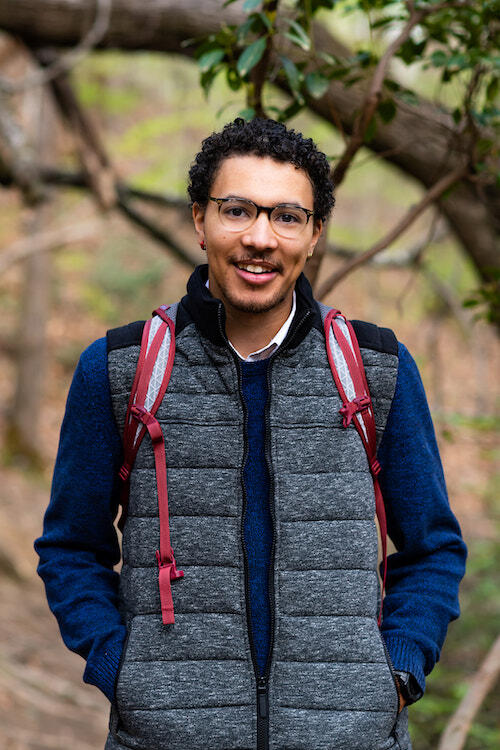
Tyus Williams, Phd Candidate & NSF Graduate Research Fellow at UC BerkeleyTyus Williams (he/him) is a PhD Candidate and NSF Fellow at UC Berkeley researching the role urban environments play in influencing the ecology of free-roaming domestic cats. Tyus is a passionate ecologist and science communicator dedicated to sharing knowledge about the fascinating world we live in and the animals surrounding us. He’s also the author of the Kirkus-starred children’s book A Day in the Life: Big Cats.
Artist
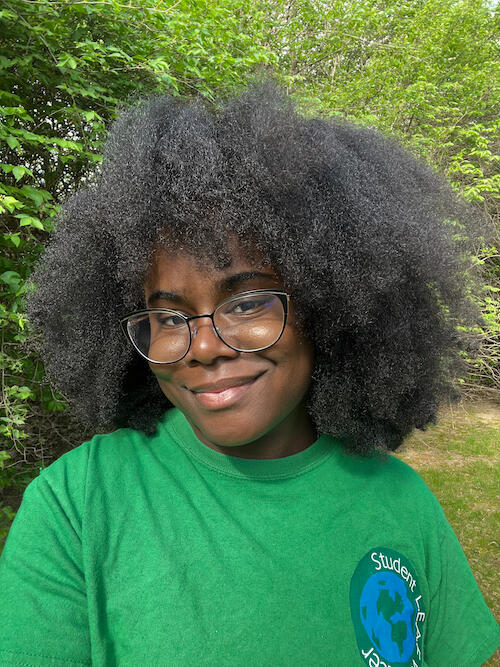
Joelle Jenkins, People's Climate Innovation Center at Ohio State UniversityJoelle K. Jenkins (she/her) is a sustainability scientist and recent graduate of Ohio State’s Master’s in Environment & Natural Resources Program. Her interests include impact assessment, developing sustainability theory using a transformative lens, poetry, food, birding, wildlife illustration, etc.
Black & Indigenous Scholars Awardees
2025
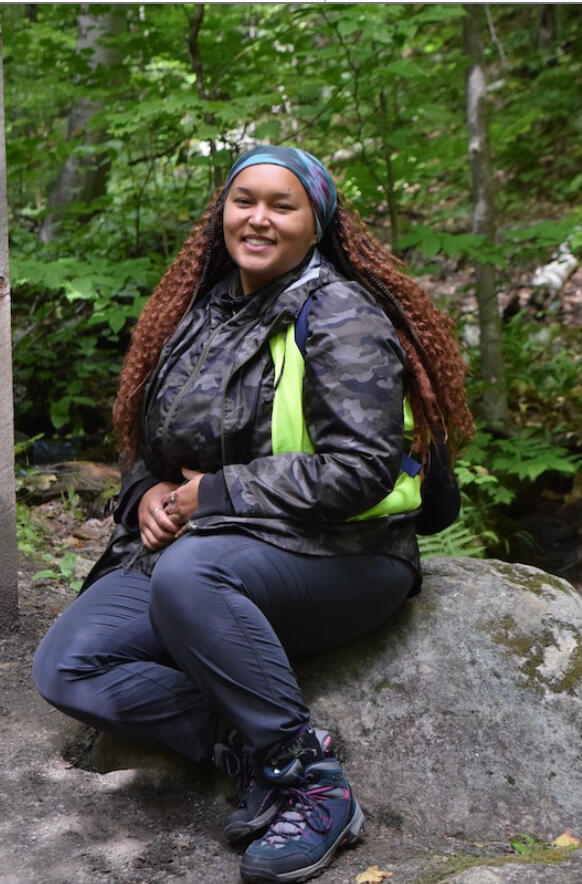
Alannah Grant
University of Guelph
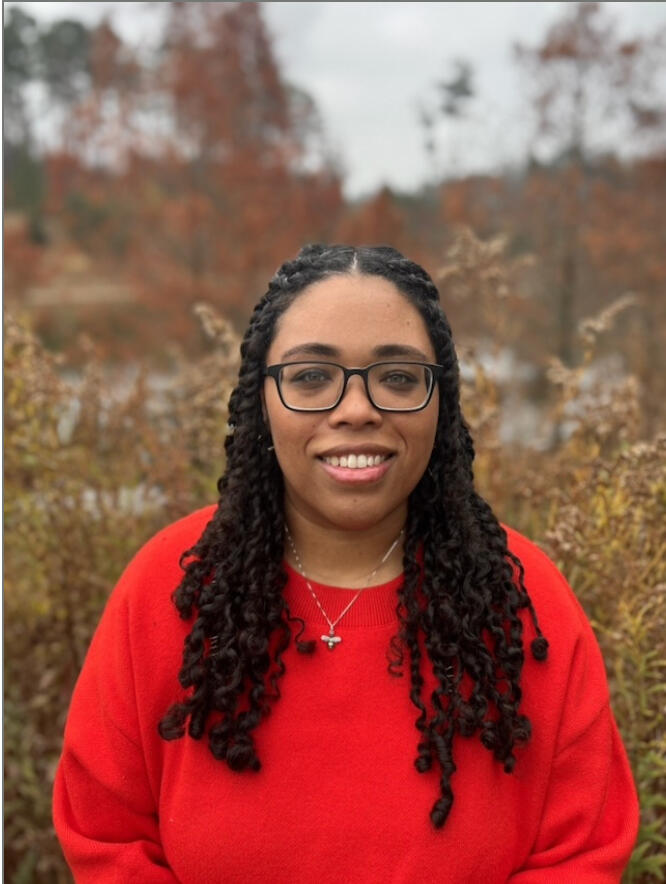
Desireé Outten-Berríos
Duke University
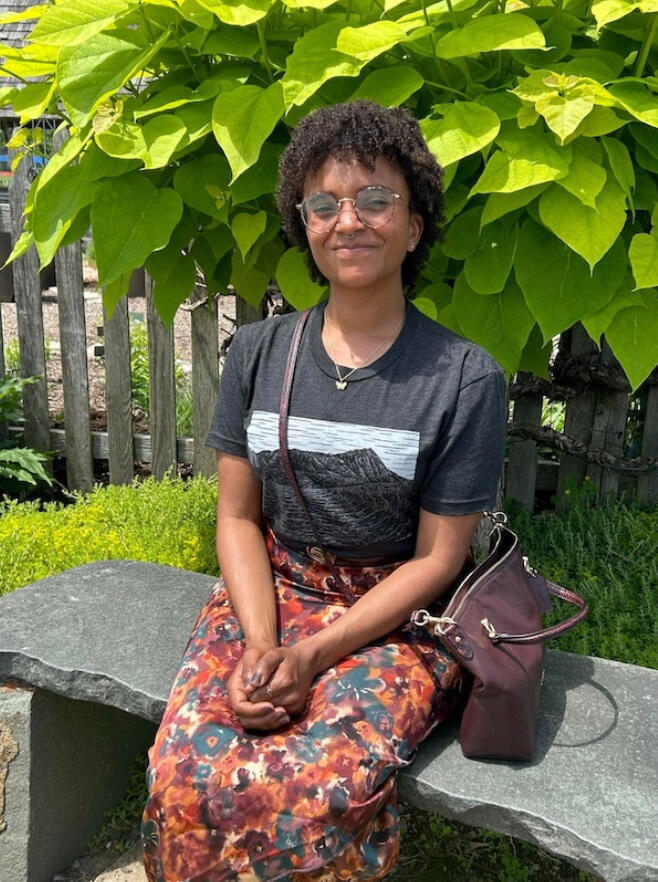
Izabelle Jaquet
Illinois Natural History Survey
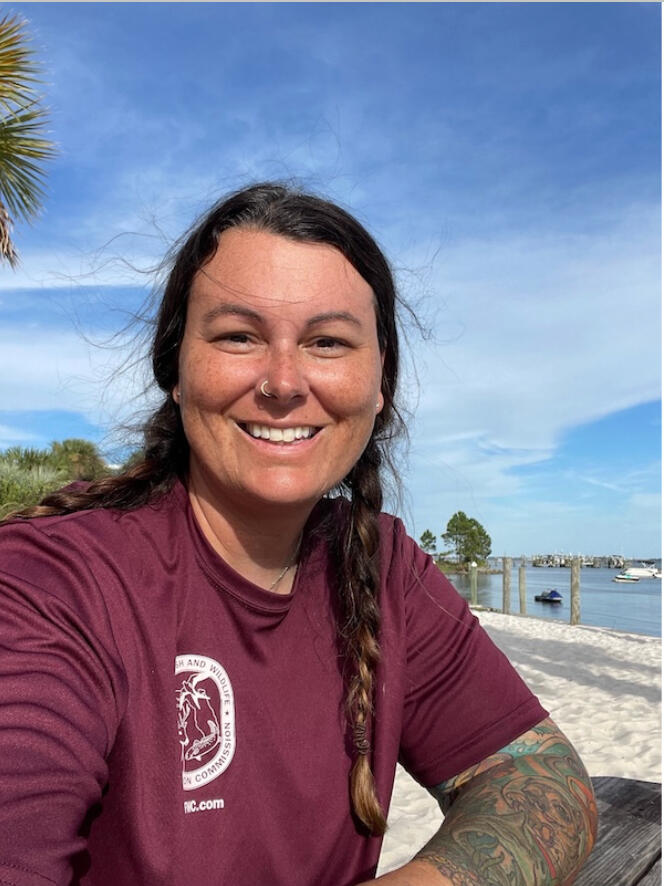
Jennifer White
University of Central Florida
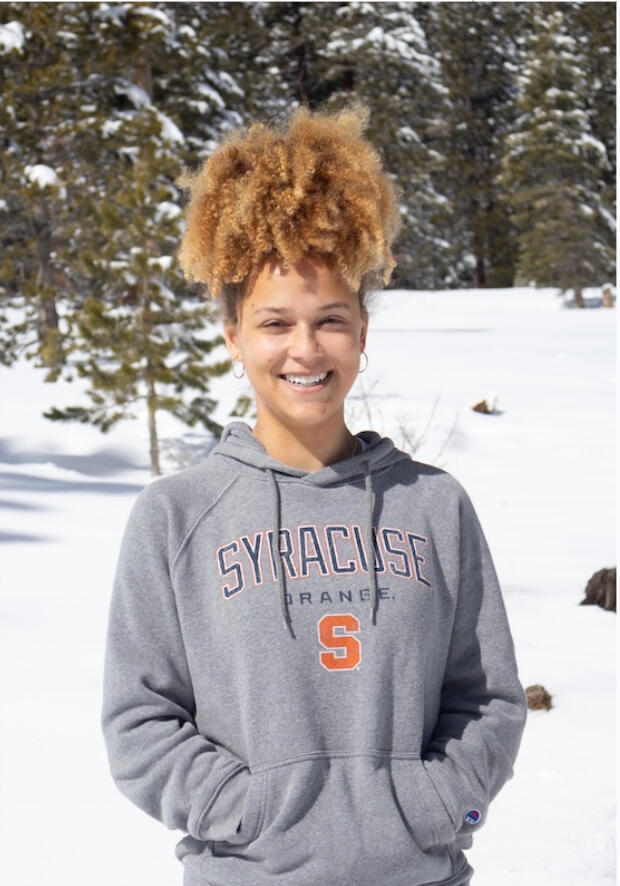
Maya Philipp
Syracuse University
2024
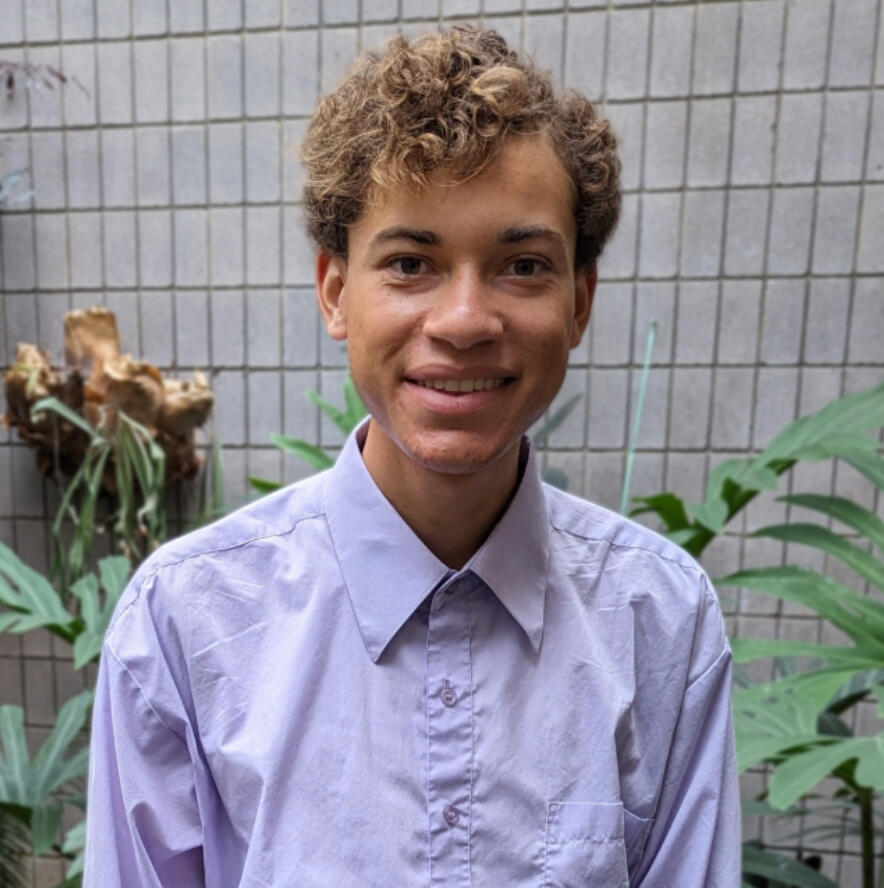
Alexander Fenlon
Arizona State University
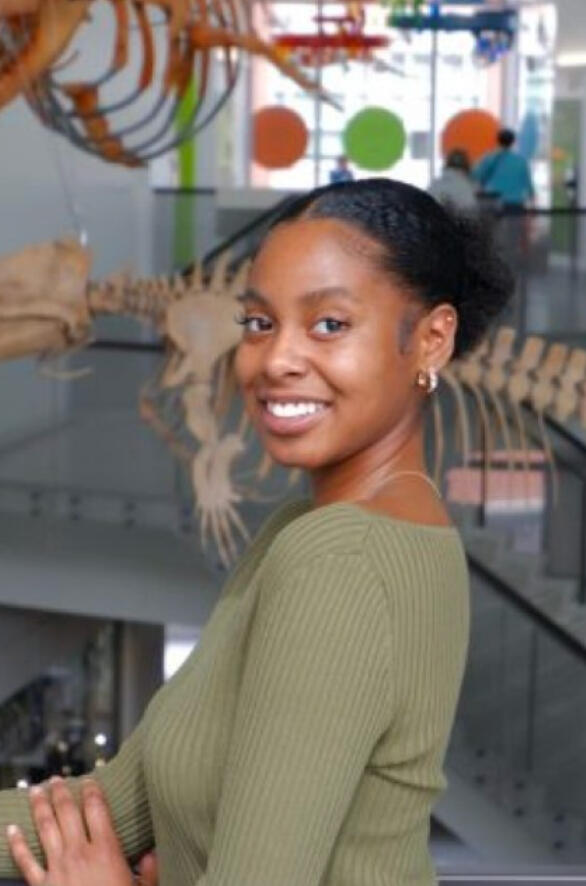
Cheyenne Graham
University of Michigan
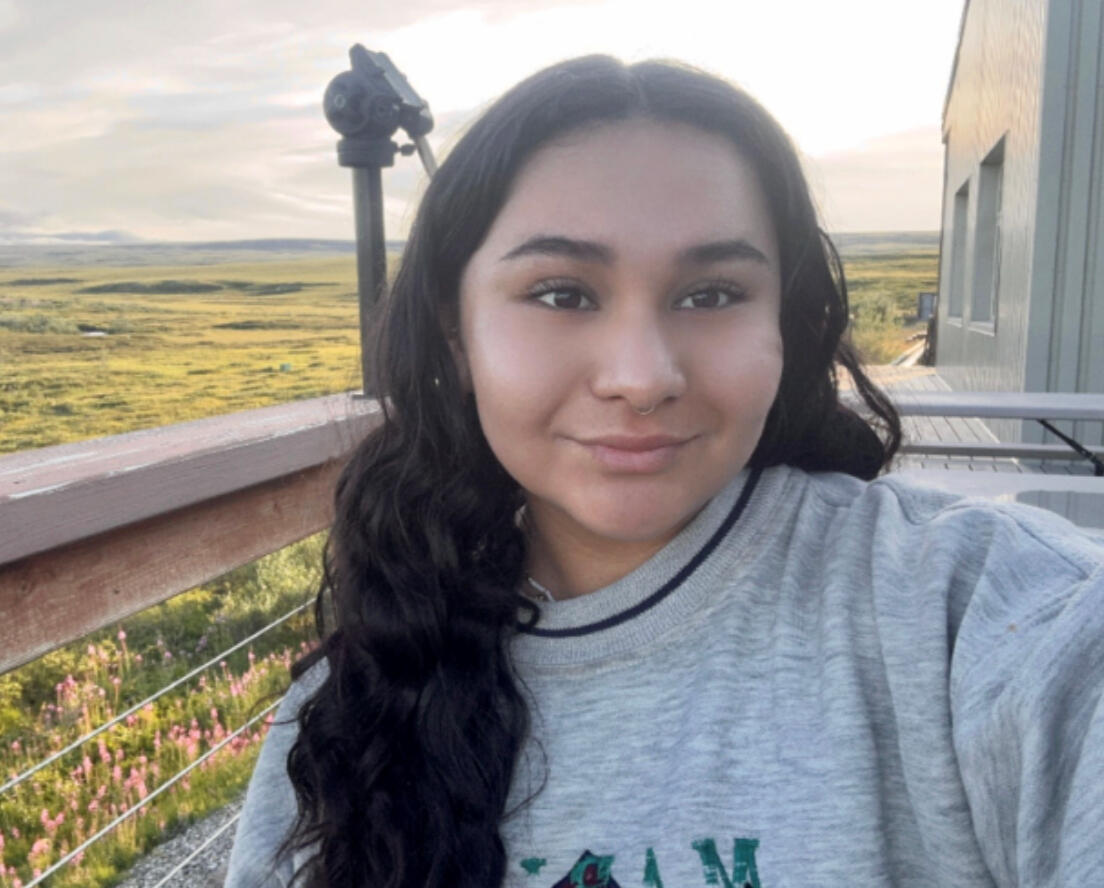
Lizzy Osterhoudt
Montana State University
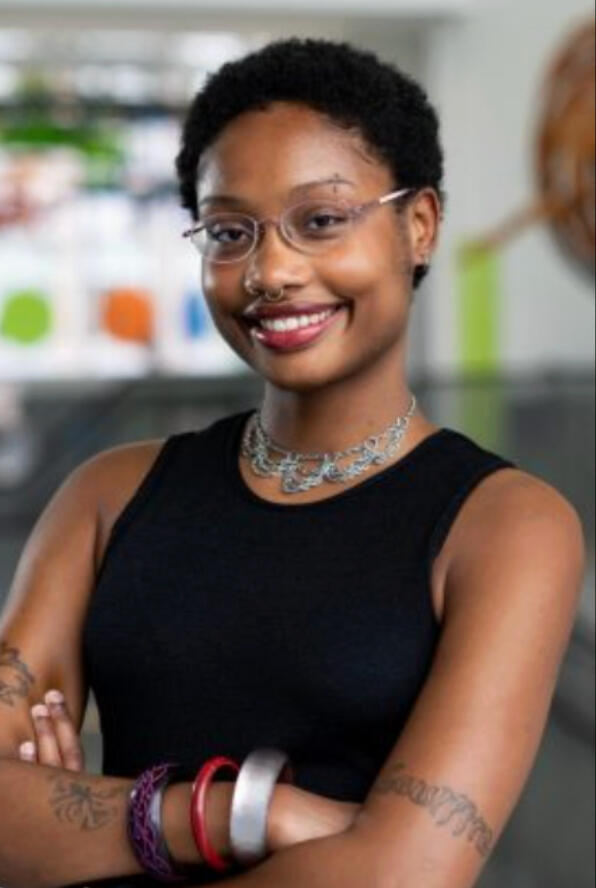
Madisun Woodward
University of Michigan
2023
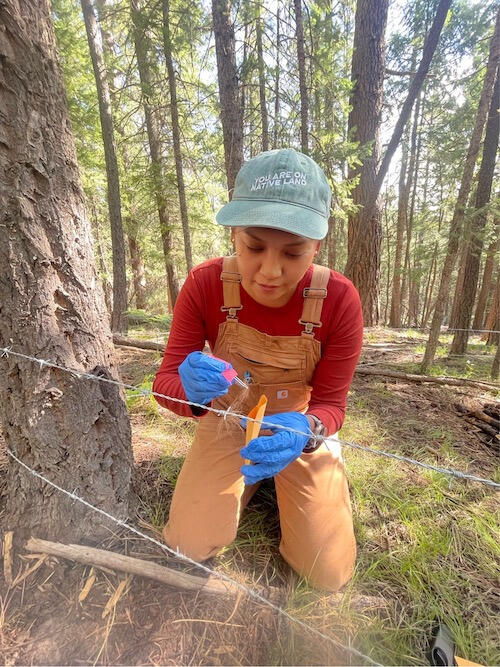
Deandra Jones
University of Arizona
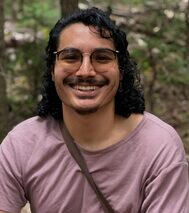
Tommy Herrera
University of California, Berkeley
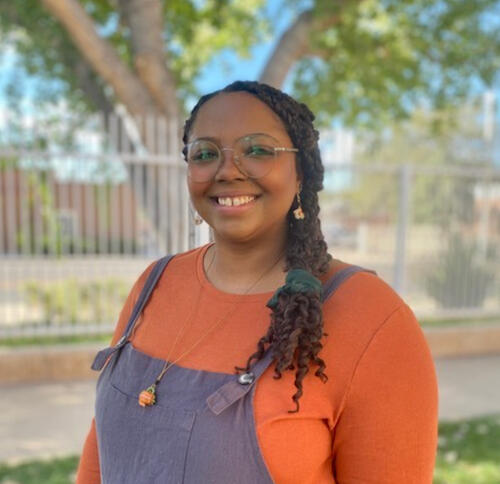
Tabitha McFarland
Explora Science Center & Children's Museum
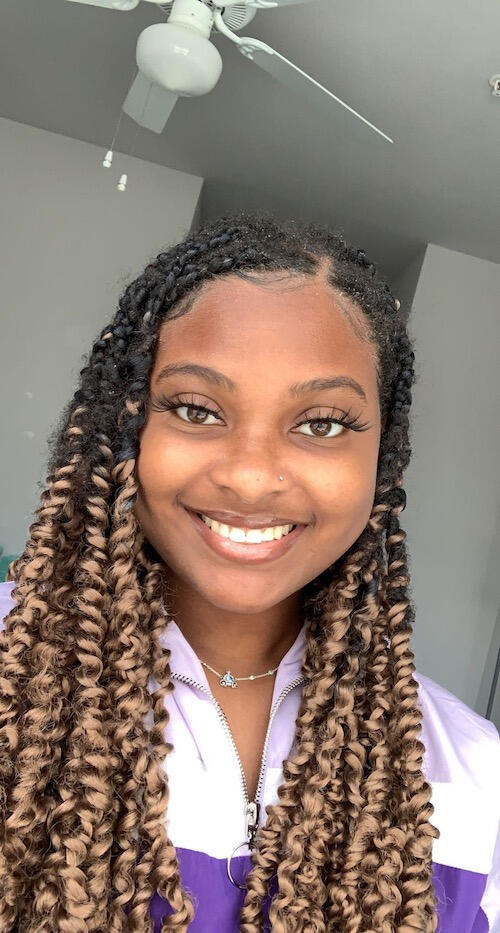
Ilana Mosley
Texas A&M University
2022
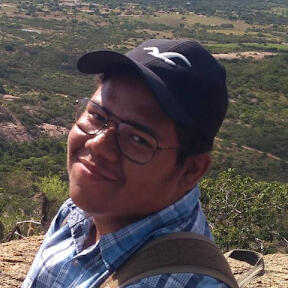
Juann Aryell Francsico de Holanda Abreu
Universidade Federal de Pernambuco
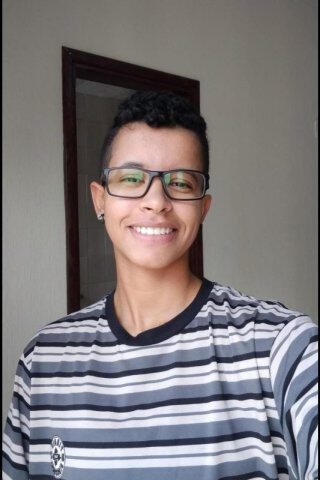
Ingrid Beatriz Ferreira Paixão
Federal University of Uberlândia
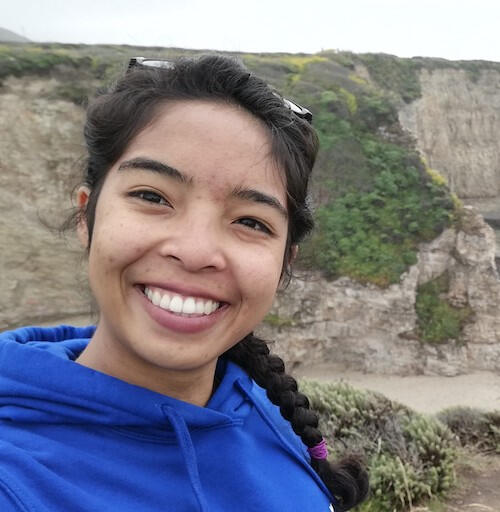
Veronarindra Ramananjato
(she/her)
University of California, Berkeley
Text
Coloring Pages
Black Mammalogists Week 2024 Organizers
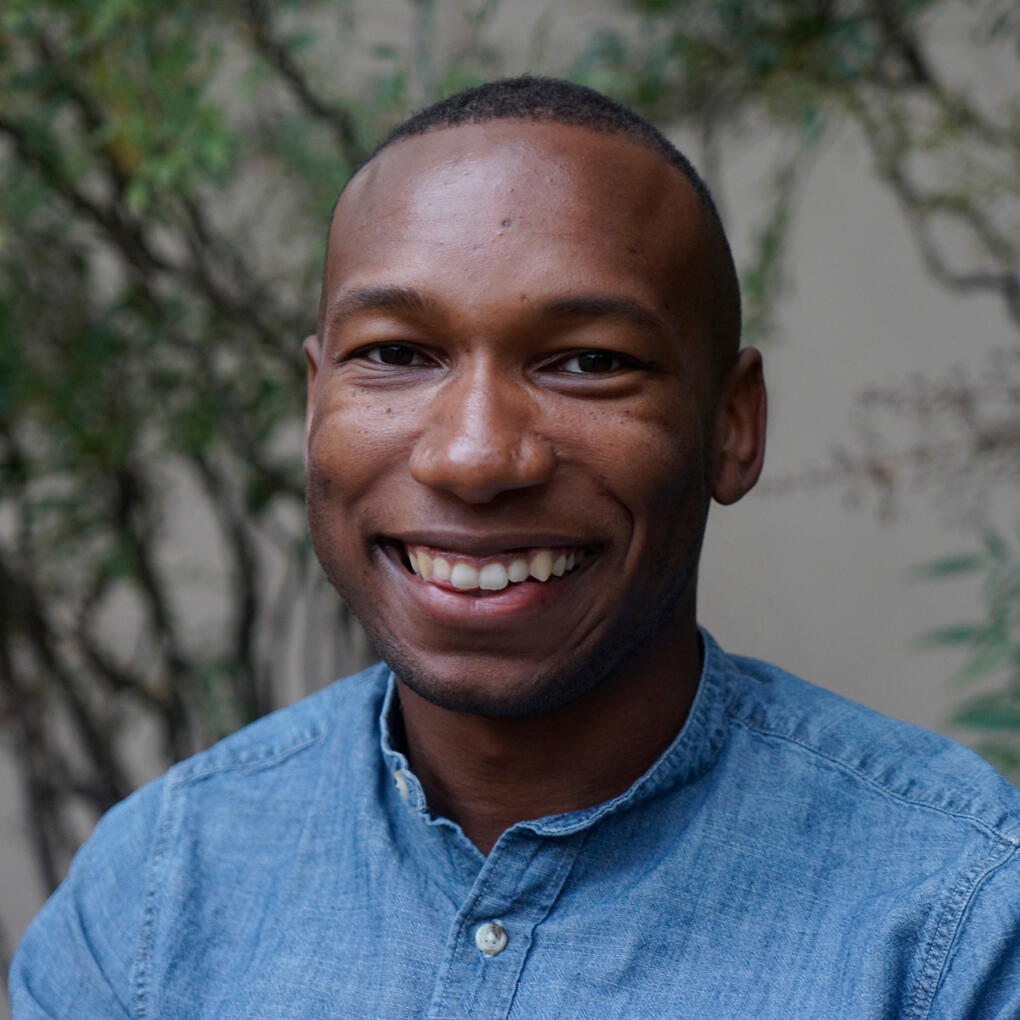
Dr. Kendall Calhoun:
Kendall Calhoun (he/him) is a postdoctoral researcher based at UC Davis and UCLA. His work explores the influence of changing fire regimes on mammal communities and human-wildlife conflict across California.
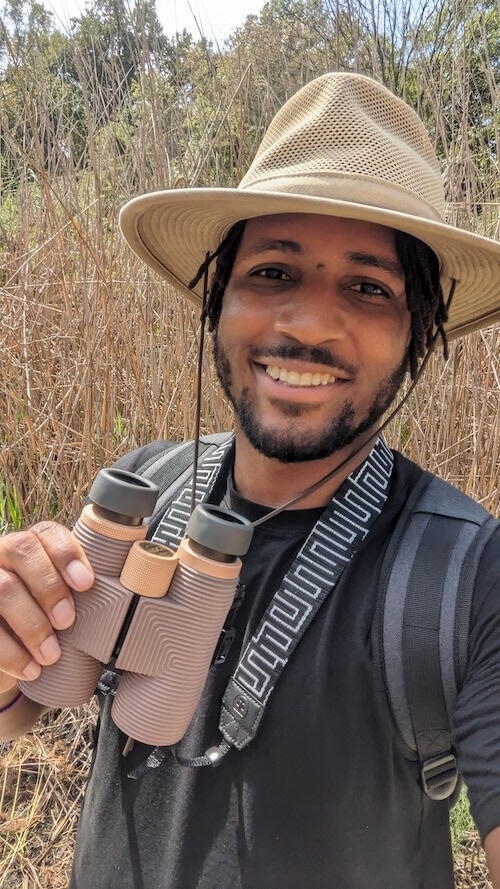
Tykee James:
Tykee James is a Denver-based conservation leader advocating for equitable access to nature's benefits. With over a decade of experience as an environmental educator, he leverages his love for birds to build trust, forge coalitions, and make a lasting impact. Recently, he was hired as the education program manager for Conservation Nation, an international conservation organization that shares his vision for meaningful change. He is also the co-founder of Wildlife Media Collab and co-host of the Wild Thoughts podcast.
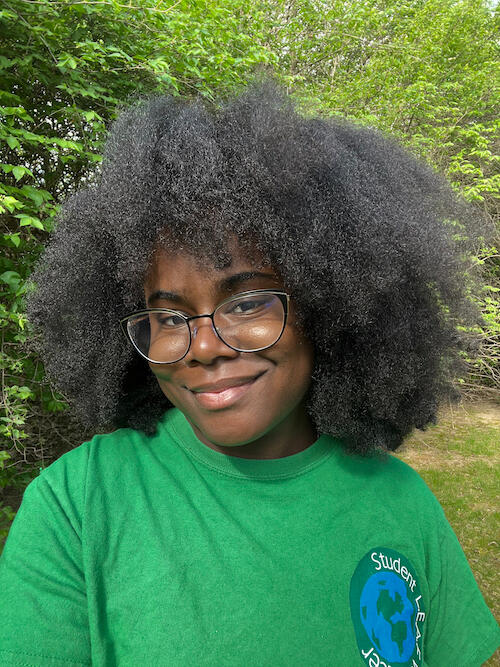
Joelle Jenkins:
Joelle K. Jenkins (she/her) is a sustainability scientist and recent graduate of Ohio State’s Master’s in Environment & Natural Resources Program. Her interests include impact assessment, developing sustainability theory using a transformative lens, poetry, food, birding, wildlife illustration, etc.
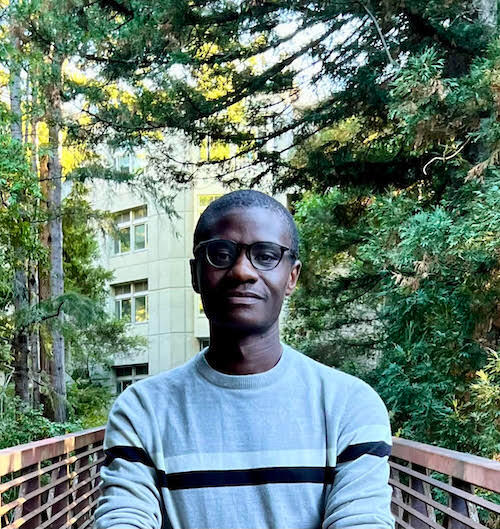
Dr. Blessing Kavhu:
Blessing Kavhu (he/him) is a multidisciplinary scientist from Zimbabwe specializing in the intersection of
conservation research and geospatial science. His past work focused on applying geospatial technologies
to enhance wildlife management and protection. Passionate about spatial modeling, his current
research investigates multi-species connectivity in response to climate change in California. Blessing is
currently a Postdoctoral Researcher at UCSC.
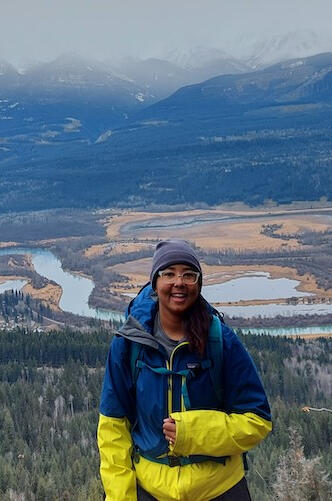
Rhiannon Kirton:
Rhiannon Kirton (she/her) is a wildlife ecologist and National Geographic explorer who has worked globally and spent the last 5 years focused on ungulate, primarily cervid, ecology including white-tailed deer, caribou and elk. Rhiannon has also spent time working with Indigenous Peoples in Canada and the US and seeks to understand how we can shift wildlife management paradigms to uphold the rights of Indigenous People and their relationship to the land and the wildlife species that inhabit them.
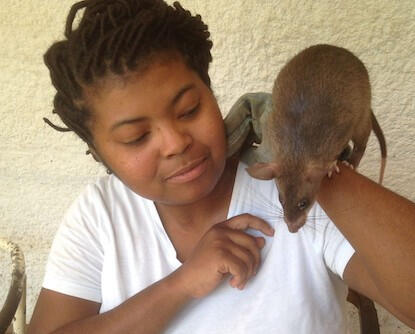
Dr. Danielle N. Lee:
Danielle N. Lee, Ph.D., (she/her) leads a research squad that group examines the ecology and ethology of nuisance rodents over urban environmental gradients with local community stakeholders. We offer authentic science experiences to local after-school high school groups and examine how field mice and field rats make a living near and off of people.
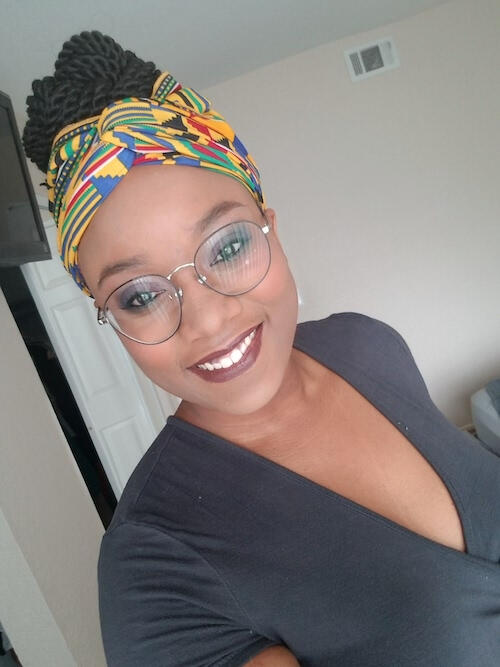
Jazmin (Sunny) Murphy:
Jazmin (aka Sunny) earned a BS degree in Zoology from UC Santa Barbara and is currently pursuing a Master of Science degree in Environmental Policy and Management at American Public University. As a research associate at the Wolf Conservation Center, her work focuses on the intersections of culture, ideology, legislation, economics and land use with canid ecology, with special emphasis on diasporic African and Indigenous peoples in the United States. She also writes on environmental issues concerning diasporic Africans and Indigenous peoples in the US on platforms such as Yes! Magazine, and serves on the Board of the Buffalo Field Campaign.
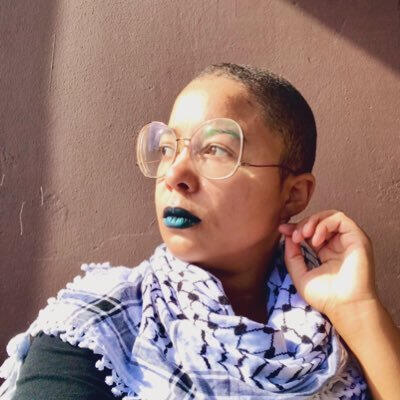
Dr. Asia Murphy:
Asia is a native Californian interested in how humans and our environments influence wildlife and interactions between species. She moonlights as a photographer and speculative fiction writer.
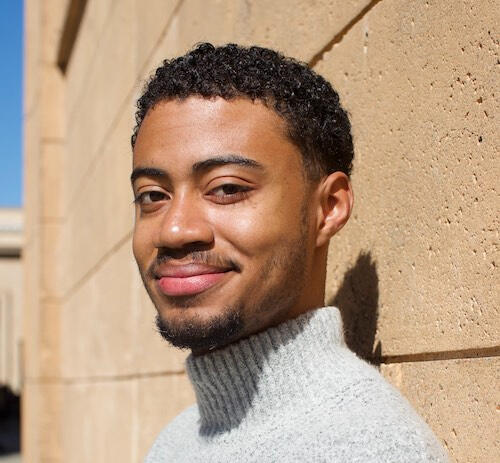
Julian Nesbitt:
Julian Nesbitt has been an avid nature enthusiast since watching Animal Planet and Nat Geo Wild. This spark has grown over the years to include a variety of jobs related to ecology, storytelling, and community engagement around environmental issues, and research experiences both at home in California and abroad from Costa Rica to Tanzania. He is an ecologist at Kleinfelder and a co-host of the Wild Thoughts podcast.
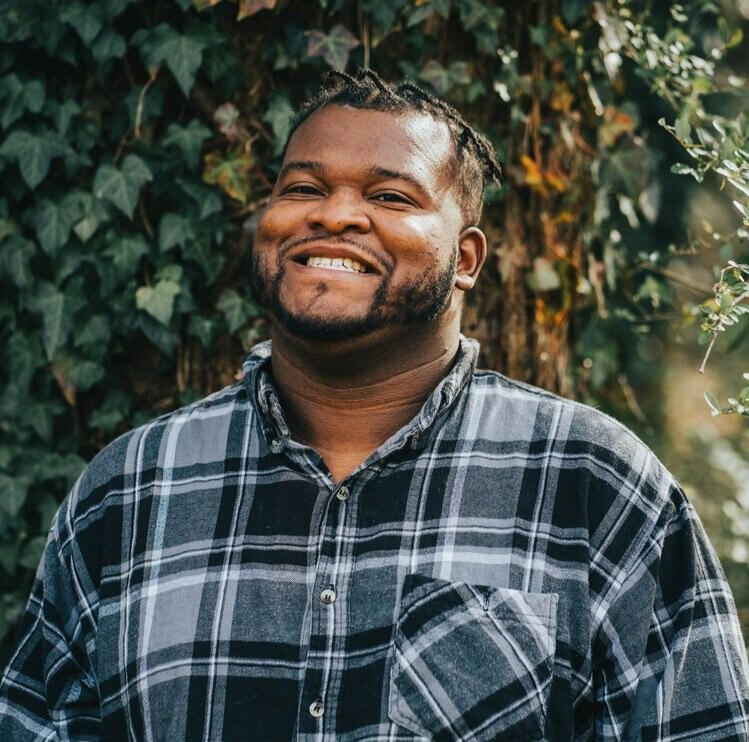
Alex Troutman:
Alex Troutman is a wildlife biologist. He has several years of experience in the field, working with various wildlife species from bats to snakes. Alex shares wildlife facts and photos on social media as N8ture AL, in his free time Alex enjoys using his passion for nature to encourage youth to enjoy the outdoors. His favorite mammal species that he has worked with is the Lesser Woolly Horseshoe Bat.
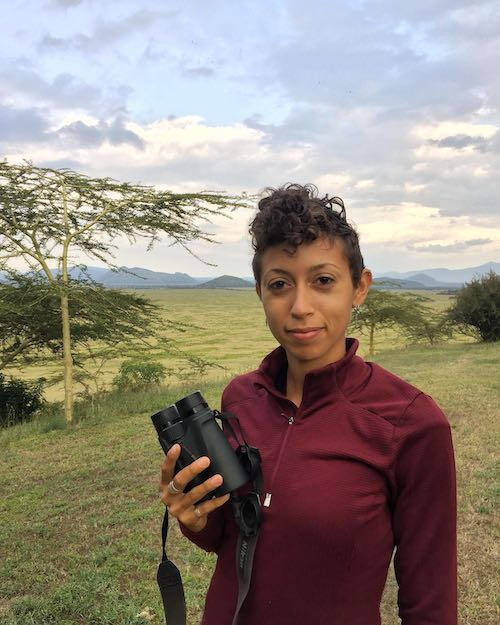
Dr. Christine Wilkinson:
Christine Wilkinson, PhD (she/they), is a conservation scientist, carnivore ecologist, science communicator, and National Geographic Explorer whose work is centered on human-nature relationships and environmental justice. She is a Schmidt Science Fellow at the California Academy of Sciences & UC Berkeley.
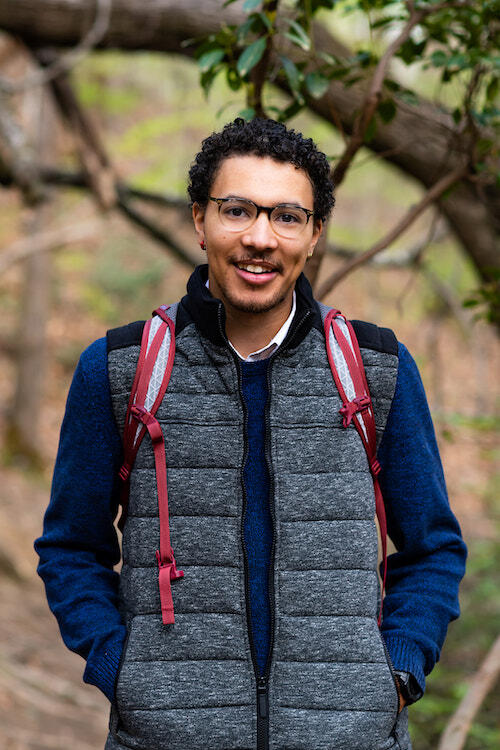
Tyus Williams:
Tyus Williams (he/him) is a PhD Candidate and NSF Fellow at UC Berkeley researching the role urban environments play in influencing the ecology of free-roaming domestic cats. Tyus is a passionate ecologist and science communicator dedicated to sharing knowledge about the fascinating world we live in and the animals surrounding us. He’s also the author of the Kirkus-starred children’s book A Day in the Life: Big Cats.
Past Black Mammalogists Week Organizers
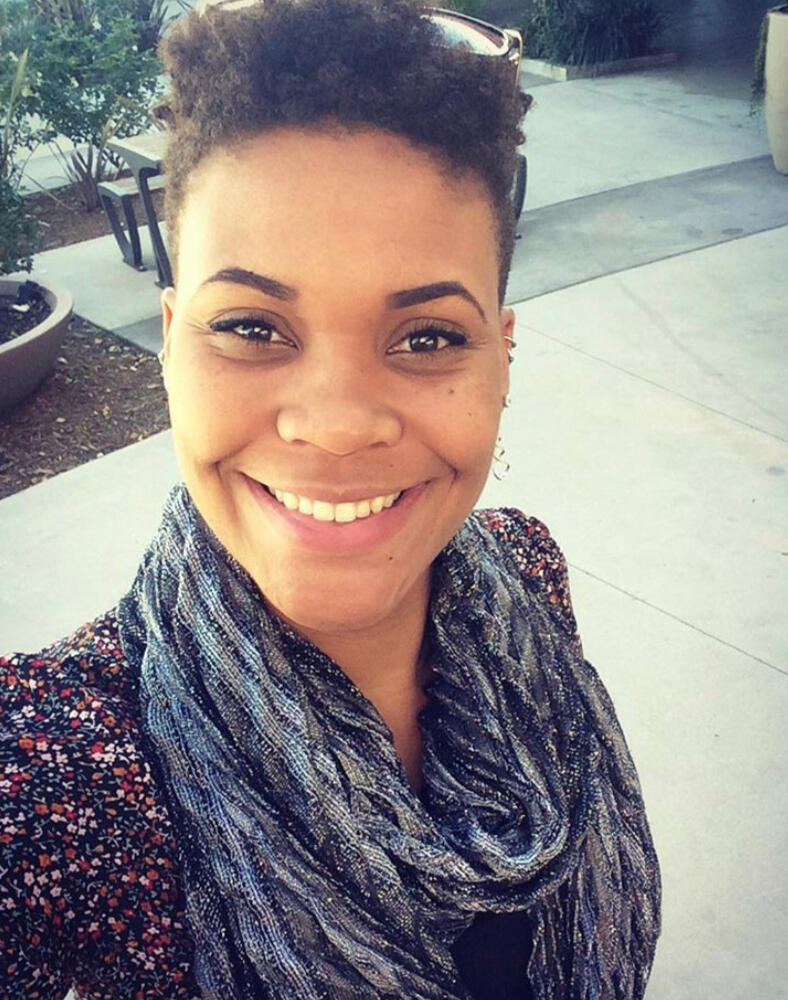
Kaylee Arnold: Born in Oceanside, CA, currently living in Athens to complete my PhD. I am a disease ecologist, and I study the gut microbiomes of animals to better understand how infectious diseases are spread across altered landscapes. Fun fact: I regularly teach hip hop and tap dance classes at a local studio.
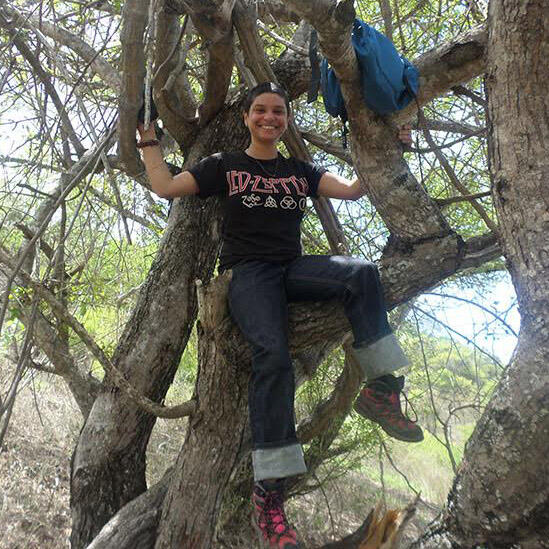
Gabi Fleury: Originally from Boston MA, I am currently located outside of Washington DC where I work at a conservation NGO and am preparing to go on a Fulbright to Botswana in 2021. My research interests include human-wildlife conflict mitigation, interdisciplinary tech for wildlife development, and community-based conservation, particularly within Southern and Eastern Africa. Fun fact: I was almost an engineer before I went into conservation. I currently co-design environmental education video games and am involved in amateur robotics.
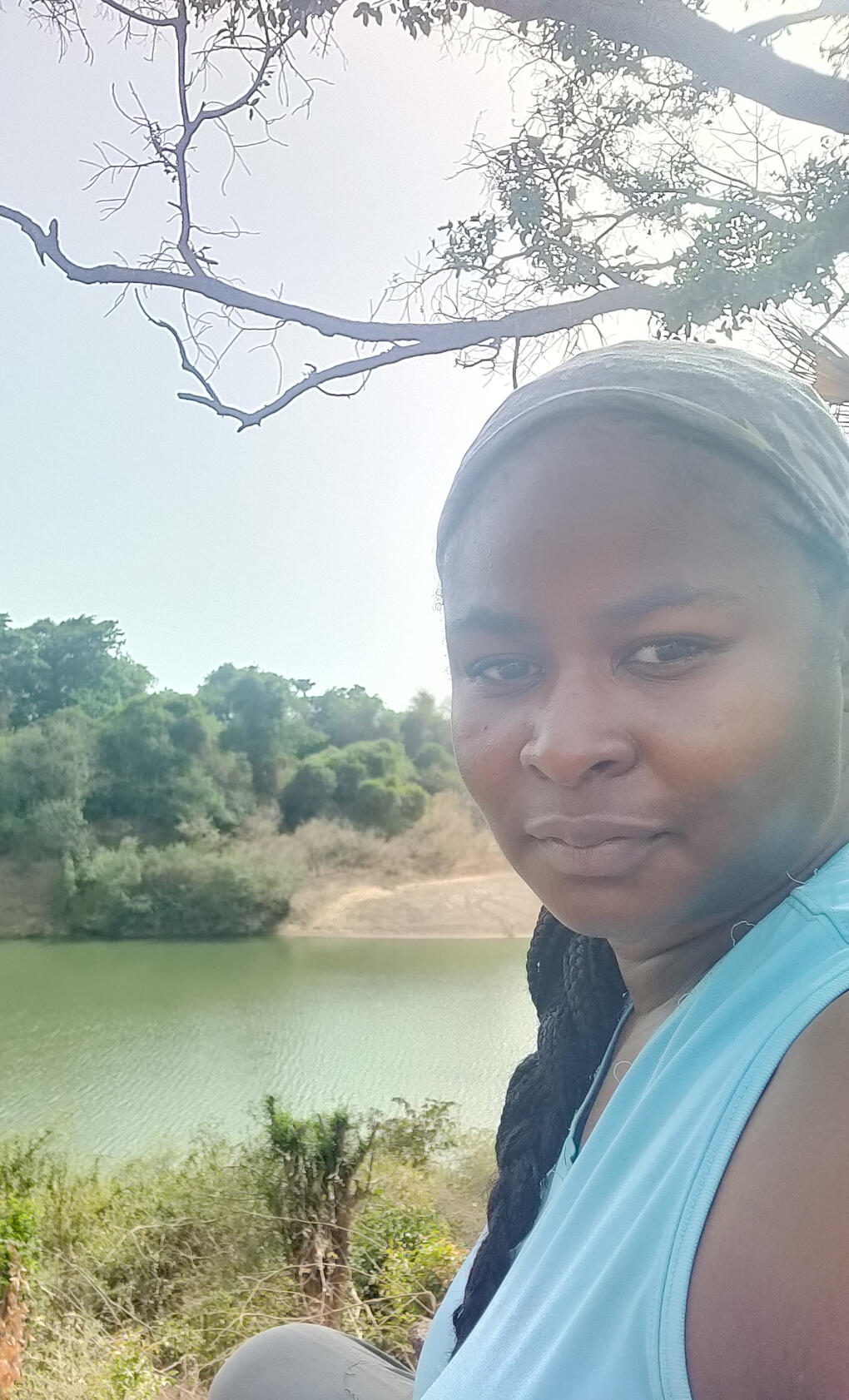
Dr. Nyeema Harris: Born and raised in Philadelphia. My research focuses on understanding the biogeography of ecological communities. To understand this, I've used biogeochemistry, genetics, telemetry, parasitology, and non-invasive monitoring like camera traps. Fun fact: I lived in Switzerland for a year.
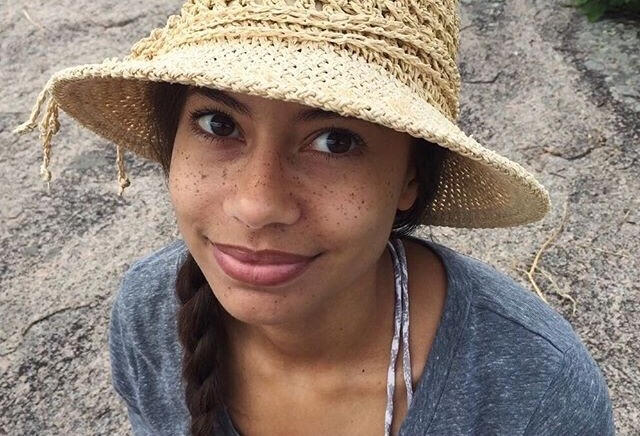
Justine Hudson: Born and raised in Winnipeg, Manitoba. My research focuses on using endocrine techniques to better understand the life histories of Arctic marine mammals and the potential impacts of climate change and human activity. Fun fact: I’m also a beekeeper!
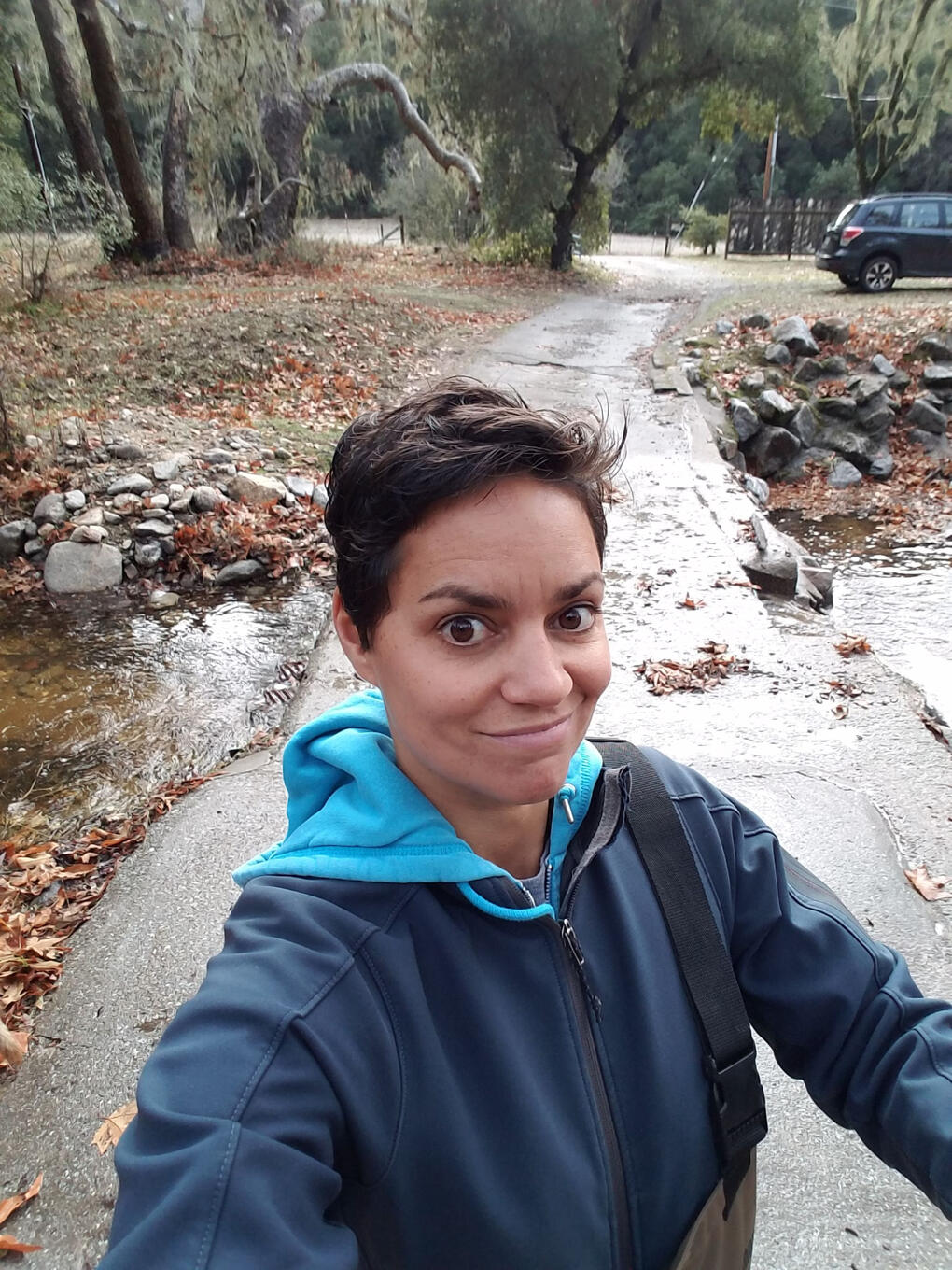
Dr. Jen Hunter: I was born and raised in Seattle, WA and currently live in Carmel Valley, CA where I work as the resident director at the Hastings Natural History Reservation, a biological field station of the University of California, Berkeley. I got my PhD in ecology from UC Davis where I studied intraguild competition and predation in mammalian carnivores. Fun fact: In college I worked as a medical assistant and x-ray technician.
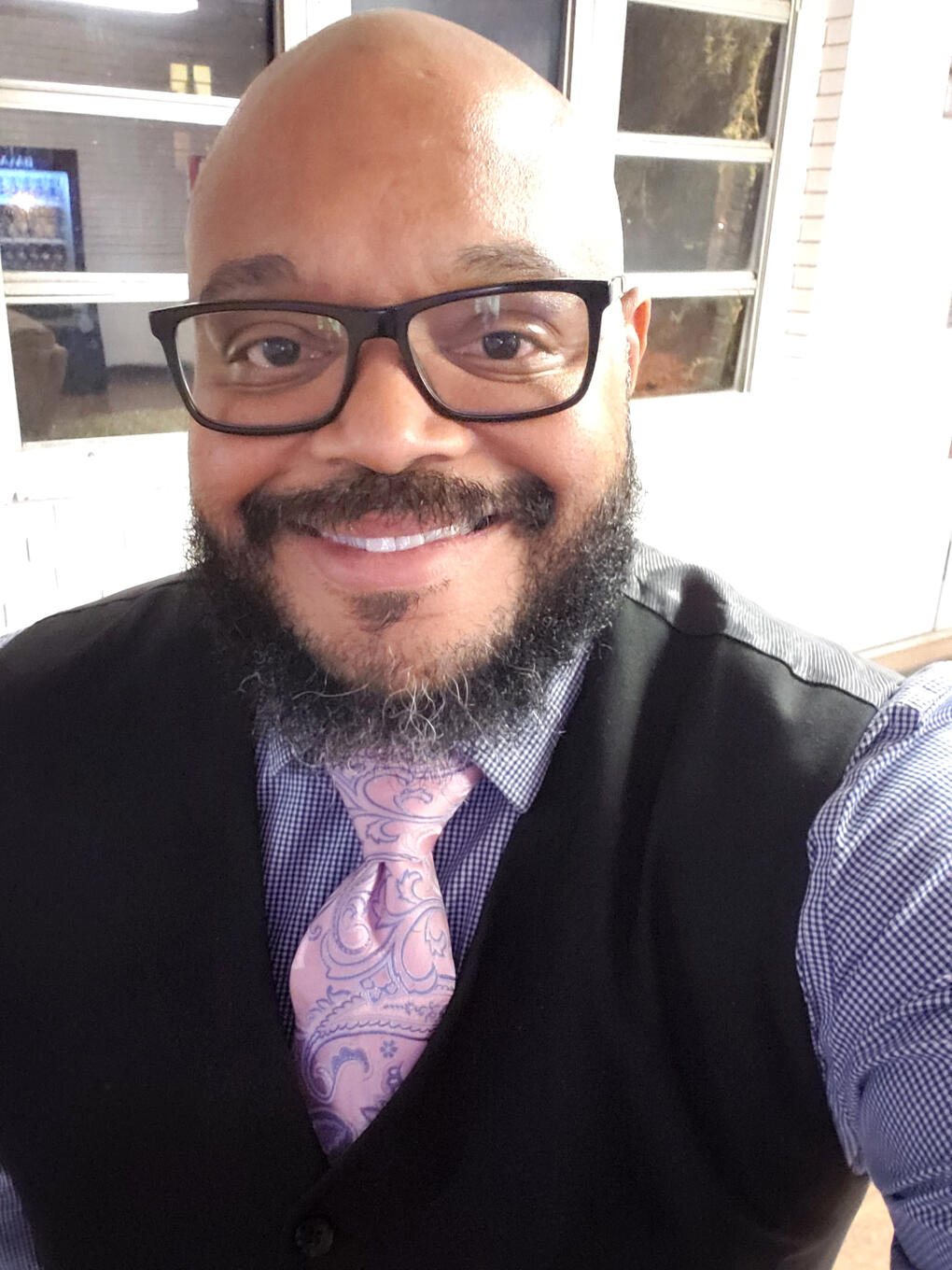
Dr. Tommy Parker: I was born and raised in Memphis, Tennessee...home of the blues and barbecue, however, I currently reside in Louisville, KY...home of The Greatest and the Derby! My research addresses the question, “What are the habitat and landscape features of cities that influence the ecological adaptations and biodiversity of mammals in urban systems?” I quantify and model vegetation, human created cover (buildings, paved areas, etc.) and population characteristics of mammals at the habitat and landscape scales. At each scale, I focus on the relationship among population-level dynamics, behavior, and resource use. Fun fact: I can sleep standing up.
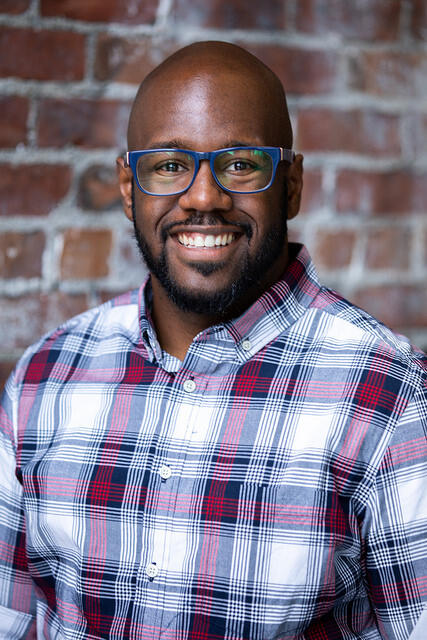
Dr. Christopher J. Schell: My name is Chris Schell, and I’m from Pasadena, CA. My research program asks questions that center on how urban environments drive adaptive behavioral, physiological, and genomic traits in urban carnivores, with a particular eye on the contributions of structural inequalities to such processes. Fun fact: I play alto saxophone, and was part of a band called Saturn Jazz that dropped an (albeit, decades old) album.
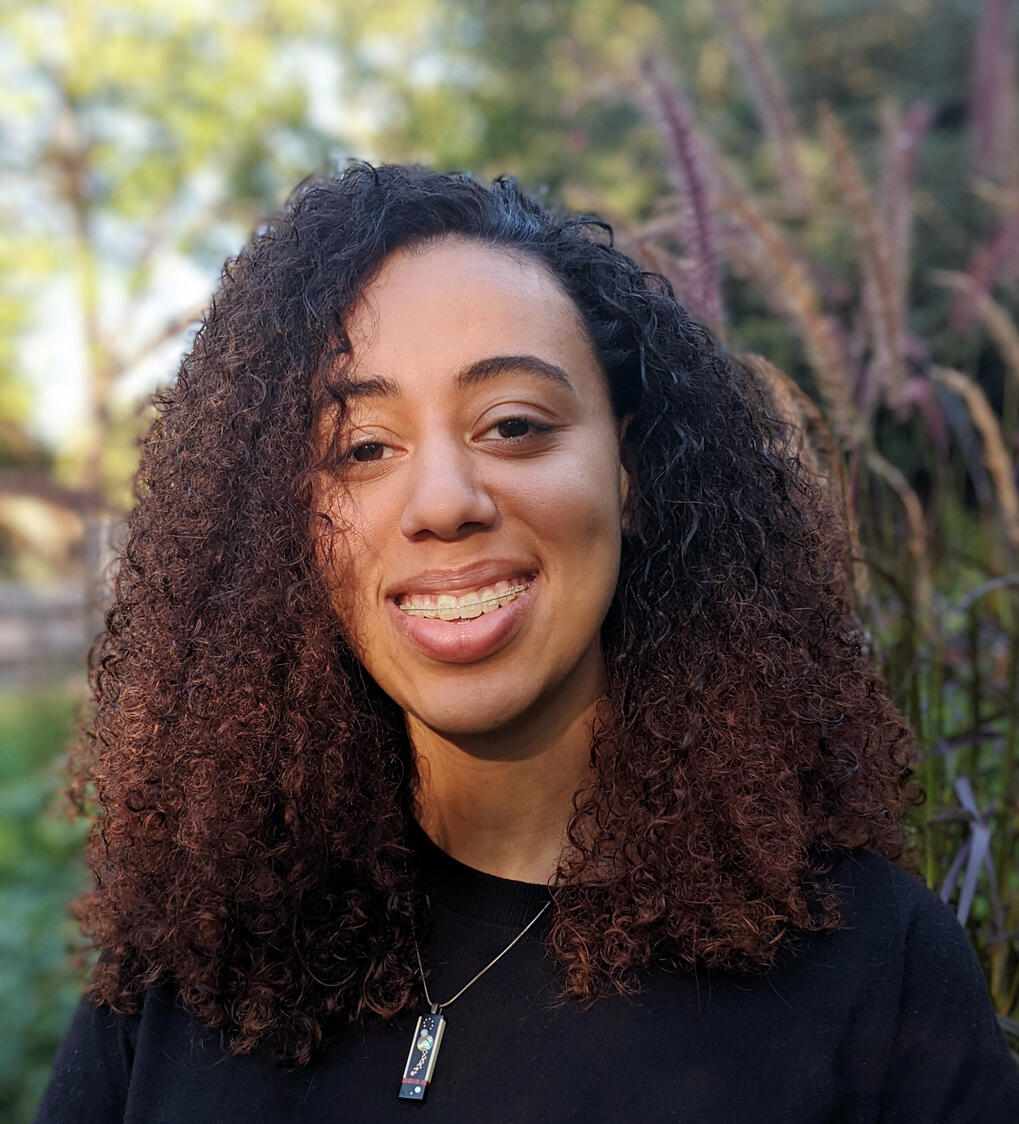
Liz Wahid: I am originally from and currently back in Salisbury, NC. I am a Science Illustrator with a wildlife conservation focus. I have a B.S. in Animal Science from Cornell University and am currently finishing up requirements to become a certified Science Illustrator as a graduate student of CSU, Monterey Bay. It is my hope to provide illustrations that help viewers to better understand, identify, and appreciate nature as well as the efforts to preserve it, and that my art aids in more effective communication to the general public. Fun fact: I used to work for the Elephant Listening Project.

Dr. Rae Wynn-Grant: Born in San Francisco, CA, currently living in Santa Barbara, CA. My research focuses on the movement and behavior of large carnivores in landscapes with increasing human activity. My main focus is on patterns of black and grizzly bear movement as they recolonize historic habitat in the Western US. Fun fact: For years I was a professional classical musician.









